THINKING ALOUD





ISSUE JUL SEP 2022 19 A QUARTERLY MAGAZINE publication of rehoboth dream solid foundation (rdsf)
Dr. Folasade Hunsu
Department of English, Obafemi Awolowo University, Nigeria
Mr. Patrick Edebor
Editorial/publishing consultant. Owner, Patrick Edebor and Associates.

Mr. Akin Adejuwon
Curator, Institute of Cultural Studies, Obafemi Awolowo University, Ile Ife.
Mr. Rotimi Lawuyi FCA
Owner, RAMA Editors.
Dr. Mrs Olayinka Opadiya

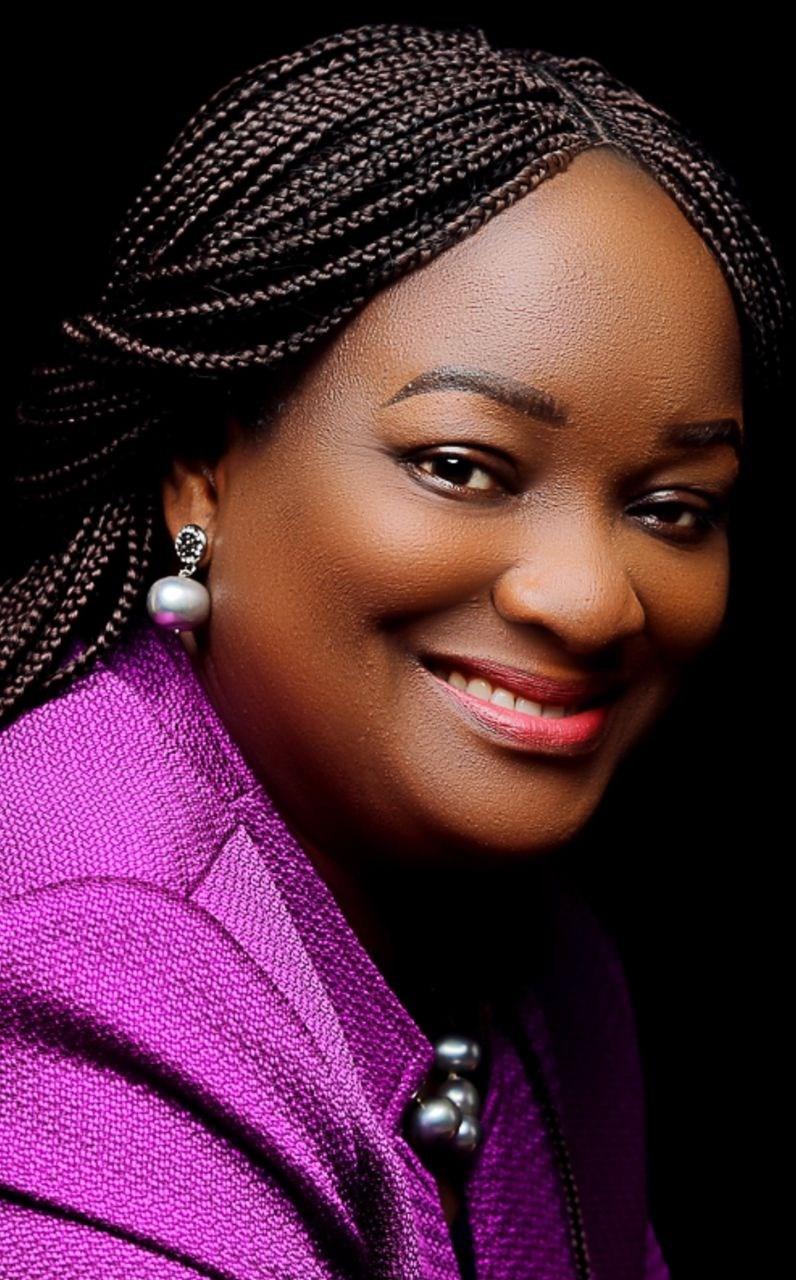
Senior Pastor, Every Nation Church Sydney Australia.

Mrs. Abimbola Komolafe
Founder/Executive Director, Rehoboth Dream Solid Foundation.
Pharm. Samson Igbokwe


Mrs Roseline Igbokwe
Mrs Ronke Osikoya
Ms Ketumi Alasa
Pastor (Dr) Joshua Opadiya

Dr (Mrs) Yinka Opadiya

Mrs Abimbola Komolafe
Rear Admiral (Rtd) K O Komolafe
Editor
Bimbo Komolafe
Publication & Design
Benjamin Eze
Project Manager
Tomi Olatunde Idowu


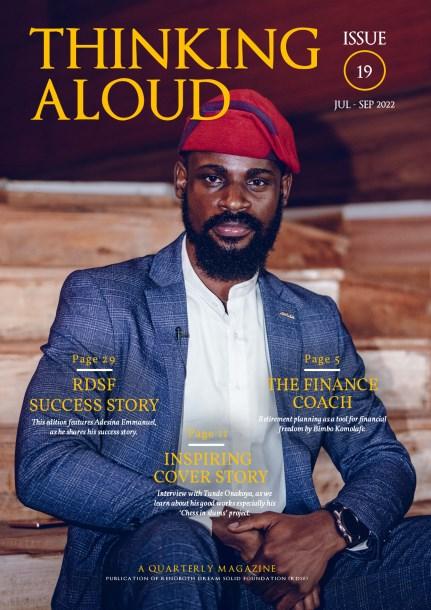
CONTENTS
Project Team
Edison Egere
Othniel Komolafe
Grace Adoga
Celestina Osiki
Dorcas Adekunle

Amarachi Uduma

THINKING ALOUD | JUL SEP 2022 2 @2022. Thinking Aloud Magazine, a publication of Rehoboth Dream Solid Foundation. All rights reserved. No part of this publication may be reproduced, distributed, or transmitted in any form or by any means, including photocopying, recording, or other electronic or mechanical methods, without the prior written permission of the publisher, except in the case of brief quotations embodied in critical reviews and certain other non commercial uses permitted by copyright law.
Cover Photo: Tunde Onakoya
Rear Admiral (Rtd) Oladeinde Joseph, Chairman, Board of Trustees
R D S F
EDITORIAL
DearReaders,
The Rehoboth Dream Solid Foundation (RDSF) is delighted to share the Q3, 2022 edition of Thinking Aloud (TA) magazine.
In this edition, our cover story focusses on the good work by Tunde Onakoya and his ‘Chess in slums’ project. Tunde quit his job to focus on philanthropy teaching disadvantaged children how to play chess and changing many lives in the process. Onakoya himself, is not new to pain or poverty. We caught up with him to know more about his background, his work, whatmotivates him andhow chess canbe atool to change the lives of less privilegedchildren.
RSDF continues to pursue her mission and vision of empowering indigent students. This edition’s success story features Adesina Emmanuel the second child in a family of 10 children. Adesina who almost dropped out of university in his 3rd year was able to achieve his dream of graduating because of the support he received from RDSF. The partners and sponsors of RDSF willbe encouragedby testimonies from Adesina andother RDSF beneficiaries.
The Parenting Spotlight for Q3 is titled ‘Thepowerofaplayingparent ’ and Columnist Bisi Olaye shares the numerous benefits whenparents areavailablefor their children.
Q3 Special Feature column was written by Omon Anenih Mordi, a seasoned interior design professional and the Founder, ‘The DEW Centre’. Omon who is also a wellness and mental health advocate shares with our readers the relationship betweenWellness anddesign.

The TA team cares about your health and shares an article on liver cancer while our relationship columnist Evi Idoghor, writes on ‘Why Relationships FailSo EasilyToday’.
Do havea pleasantreading experience andremember to share this magazine withpeople inyournetwork.


Onbehalfof the TA magazine project team,I wishyoua beautiful andsuccessfulquarter.
Bimbo Komolafe Editor


3 A QUARTERLY MAGAZINE
connect with us on social media thinkingaloudmagazine ISSUE JUL SEP 2022 19
R D S F
THE POWER OF A PLAYING PARENT
“

Mummy, come and play with me,” called out my youngest child. It was a hot Sunday afternoon. I had a long “to do” list. Playing wasn’t on my list.
“Mummy, please” she pleaded again, “come and play with me” This pre schooler is persistent. I had food to cook, laundry to sort and general preparations for the week. Yet, I remembered from my preteen first child, that offers like this don’t last for ever. One day, you are their best friend, they want to play with you and be with you all of the time. Fast forward a few years later, they are embarrassed to hug you in public and they would rather be with their friends. This recollection prompted meto putaside my list.
“What do you want to play?” I asked her. “Pirate ship!” came her enthusiastic reply as she ran to the garden. We played with her pirate ship floating small boats in the large pirate ship. Somehow, we ended up splashing water on each other, and changed our play. Armed with water pumps, we chased each other across the garden to spray the other person. I got completely soaked. It was such fun! We were both giggling and shrieking. Seeing the pleasure on her face, filled my heart with even more joy. Why didI evencontemplate missingthis moment?
The reality is that we live in a busy world of long “to do” lists, and finding time to play with our children isn’t always easy. Perhaps we think that playing is for children. We may believe that if children play with their siblings, friends and cousins that should be sufficient. However, research has shown that our role as a playmate for our children is unique and cannot be replicated with someone else. This is especially because it directly affects ourrelationship.
I once heard some say, “no influence without access.” The explanation given was that in order to influence someone, you need to have access to them. Access is not
just physical, but also about the openness of the listener arethey willing to truly listen to whatyou are saying? They were referring to adult relationships. However, I believe that the same applies to our children, with whom we hope to have lifelong relationship. Playing with our children helps to lay the foundation of trust and intimacy that can be called upon in future.. Playing with our children can facilitate their cognitive, emotionalandsocial development.
Carolyn Webster Stratton puts it beautifully in her book, The Incredible Years, when she writes “Play helps to bring a warm relationship and strong attachments between family members and create a bank of positive feelings and experiences that can be drawn upon in times of conflict.” She also goes on to argue that playing with young children is one of the fundamental activities that parents should engage in to minimise discipline challenges.
Even with the desire and willingness to play, we may feel unsure on how to actually play with our children. Two tips are to follow their interest and make it an enjoyable time for them. Is your child interested in dancing, singing or board games? Do something that they really enjoy. This is also a time for fun, so avoid correcting or imposingyour idea.
It is another hot day here today. I’m off to join my daughter in the garden to see how she wants to play. I have a feeling that I will end up wet and full of joy. It’ s great to also know that I will also be strengthening our bondby playing withher.
Bisi Olaye is a trained counsellor and on the board of governors for a primary school in England. She is passionate about children and young people, and has experience working with them in different capacities including mentoring and counselling. She is a mother of three children.
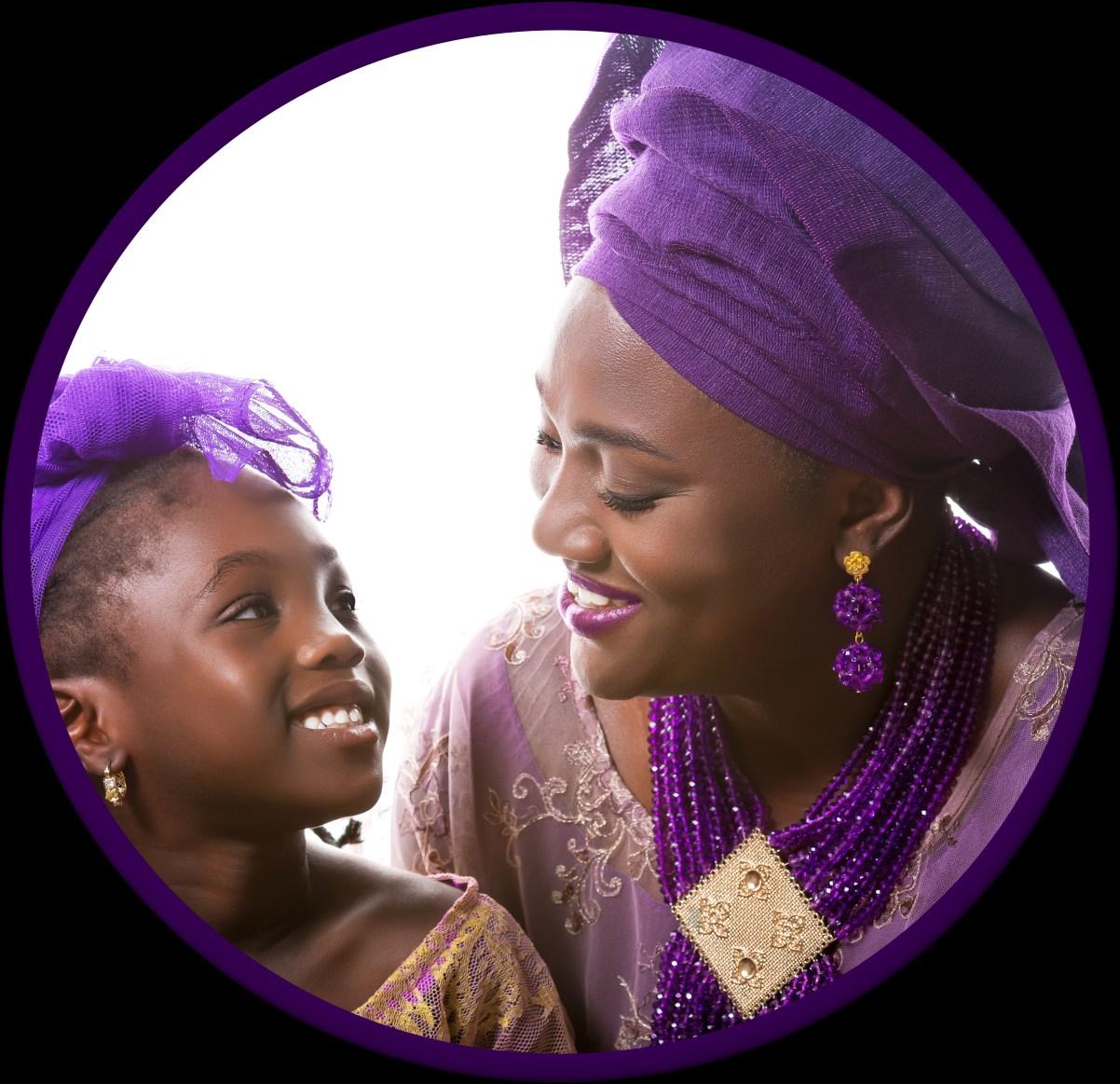
 D S F
D S F
4 A QUARTERLY MAGAZINE
R
RETIREMENT PLANNING AS A TOOL FOR FINANCIAL FREEDOM
Retirement has been defined as ‘the action of leaving one’s job and ceasing to work’. Everyone must take financial decisions consciously aware that retirement is compulsory andwill happento everyone.

Even if you love work so much, your physical form will restrict you from working so hard in your later years. With proactive planning for retirement, you can seize the power to live a dignifiedlifein retirement, without lowering your standard of living while maintaining your financialindependence.
WHAT IS RETIREMENT PLANNING?
Retirement planning involves determining your goals and targets for life in retirement. This should cover every aspect of your well being to ensure a healthy lifestyle for your physical, mental, emotional, social, spiritual and financial health. All the components that make up the financial and non financial aspects of your retirementlife.
This article will focus on the financial aspect of retirement planning. In this context, your financial retirementplanningmeanssettingyourincomegoals andtheactionsanddecisionsnecessarytoachievethose goals




Financial retirement planning includes planning for sufficient sources of income to cover your expected expenses without depending on others. It will involve building up your savings and investment to generate enoughincome to meetyourexpenses.
WHAT IS THE RELATIONSHIP BETWEEN FINANCIAL FREEDOM AND RETIREMENT PLANNING?
Financial freedom is that situation of having enough money or income to pay one's living expenses for the rest of one's life without having to be dependent on others or any active business or job.
Simply put, it means getting to the stage where your money begins to work for you instead of you working for money. It is the stage when your passive income exceeds your expenses. Passive income is earned when your money works for you (you don’t undertake any active activity to generate the income).




The goal is to have financial freedom before and during retirement. This requires that you “sow the right seed” at the right time. The seed sown today will grow and yield fruit down the road. Your financial decisions and choices will determine how early you attain financial freedom and how long youstay financially independent.
Anyone can achieve financial freedom but those that will achieve this early are those who start taking the right actions early in life. The financial decisions taken during the years when you earn steady income should go towards saving and investing maximally to create wealth which can produce passive income . The established channels of passive income can then finance your lifestyle whenyou have retiredor leftemployment.
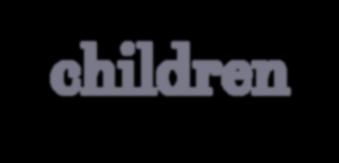
WHY IS IT IMPORTANT TO PLAN EARLY FOR RETIREMENT & WHEN SHOULD YOU START PREPARING FOR RETIREMENT?

The best time to start planning for retirement is from the day you earn your first salary. If you have not planned before now, then commence! There is a saying that when you wake up is your morning you can start at anytime. It is however more painful when you start late. Early planning means you can benefit from the power of compounding, and you can make gentle and gradual sacrifices to build your wealth. When you start saving towards retirement early, you also stand a better chance of building up a retirement fund that will support you in retirement without lowering your standard of living or changingyourlifestyle.
It is important to be aware that there will be different types of expenses in different phases of life. Your expenses during your active years will include buying your first home, raising a family, paying for children s education etc.

| 5 A QUARTERLY MAGAZINE
R D S F
It is important to be aware that there will be different types of expenses in different phases of life. Your expenses during your active years will include buying your first home, raising a family, paying for children’ s educationetc.
While these expenses are unlikely to continue into your retirement season, you will pick up new expenses (medical bills from age related ailments, higher insurance premiums, philanthropy, etc).
If you live within your means and build up wealth while the going is good, you will be able to live as if you never retired after you have retired. Shun ‘procrastination’ and ‘take action’ today. Make every second count. Sacrifice the leisure of today to fund yourretirementseason.
“Black tax” This is another faulty retirement plan. Some people expect that relatives they have sponsored through school will repay them when they start working by putting them on some sort of salary or allowance. As life often throws up surprises, resulting in changes in the circumstances of the sponsored relative (either by marriage, health or otherwise), “black tax” is poor retirementplanning.
Quick fix investments Targeting income from quick fix investment schemes will not deliver a robust retirement solution. In most cases, these investment opportunities are Ponzi schemes masquerading as genuine investment outlets.

WHAT IS NOT A RETIREMENT PLAN?
Some people erroneously expect that funds from other people will support their life in retirement. I will like to point out some of the plans that are not acceptable as retirementplans.
Your children People that fail to plan adequately for their retirement expecting their children to fend for them when they stop working are exposed to surprises. Life happens and your children have their own lives to live. Taking careof you may notbe apriority.

Inheritance Circumstances can change and relying on assets or gifts from benefactors to fund your expenses in retirement is a risky plan. As you cannot know with certainty the plans of the people you think love you enough to leave you some inheritance, you stand a risk of getting nothing. This is further compounded because such gifts can only come on the demise of these persons most often a parent, who may live for very long. What happens if you retirebefore your benefactor passes on?
Your business Your business should not be your retirement plan. Rather, it is the capacity of your business to continue to generate income without your active participation that can be part of your plan. However, in full retirement you are not expected to be in active business or in employment. This means you need to look beyondrunning a business asa retirementplan.


WHAT ARE THE MAIN LIFECYCLE STAGES AND HOW IMPORTANT IS THIS TO RETIREMENT PLANNING?
Makehay whilethe sun shines” is a popular saying thatis essential for being in control of your own financial situation. To make hay while the sun shines means that you take advantage of the chance to do something while conditions are good.


It also means you make good use of your time or make the most of an opportunity while you can. We can break life into 3 possible lifecycles and look at what you should be doing during each of these phases of life towards retirement.
Under40years


This is what is considered the ‘Building stage’. At this stage, you are starting your business or career journey and need to set your financial targets breaking them into short, midandlong termplans.








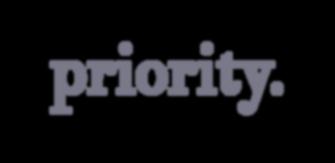


If having a family is part of your life goals, this is the time to start ensuring that you have a reasonable family planwitha reasonable spreadbetween the children. This is also the stage to commence building your investment portfolio and your wealth. You can take higher risks and position for higher returns on investments. In this phase you commence a gradual build up of savings and investments towards your retirement fund.

THINKING ALOUD JUL SEP 2022 6
People that fail to plan adequately for their retirement expecting their children to fend for them when they stop working are exposed to surprises. Life happens and your children have their own lives to live.
Taking care of you may not be a priority.
Make hay while the sun shines is a popular saying that is essential for being in control of your own financial situation. To make hay while the sun shines means that you take advantage of the chance to do something while conditions are good.
R D S F
40to60years
This is the growth or consolidation stage where you focus on your financial targets; short, mid, and long term. You are still active in employment or business and growing your business or working your way higher on the career rack. It is the time to consolidate on your family set up. At this stage, you are most likely occupying mid level /senior management role in employment. If you are self employed, you will be focusing on further growing your business. It is the period when you solidify your investment portfolio and pay attention to preserving the wealthyouhavebuilt.

Over60years
This season is what is popularly called the “Golden age” when you should reap the fruits of the seeds sown in earlier years. It is the time to begin living on built wealth, plannedpensionandPASSIVEINCOME.
Focusing on preserving your wealth and legacy becomes very important. If before this time you haven’t paid attention to preserving your legacy by proper estate planning, this must now receive attention. This is also the period that most people consider philanthropy and social responsibility and actually begin to give back to the society.


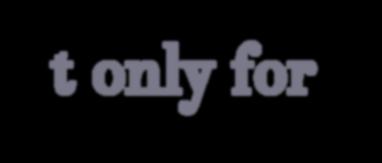

4. Ask questions in your place of employment and gather sufficient information on what your organisation is doing on your behalf, what your terminal benefits are and what conditions entitle you to these benefits.

5. Obtain information on all your workplace benefits and take action to comply with requirements from your employer. Complete and sign all forms with respect to Life insurance policies, Next of Kin, and where requested, tendera copy of yourwill.
Financial freedom isn’t only for your days in active employment but includes the season of life when you can no longer actively work. Don’t be among the group of people who work so hard, retiring into penury with nothing to show for their manyyears ofhardwork.

The quote by M.K. Soni, a Google scholar &motivational speaker sums up the need for everyone to focus on retirement planning; “Retirefromwork,butnotfrom life”. Life continues in Retirement, and this season is one to look forward to and should not be thought of with fear.
If you haven’t retired and have not started saving towards retirement, begin now as it is NEVER too late. No matter your current level of income or how many years you have worked, it is essential to begin saving for retirement. There are many resources to support you in this area so seek professional advice if unsure. Remember, the person who takes necessary action on time will retireinto alifeof COMFORTandDIGNITY.
WHAT ARE THE NECESSARY ACTIONS FOR A GOOD RETIREMENT PLAN?
1. Set your retirement goals identify your retirement date andtargets.
2. Choose a Pension Fund Administrator and open a Retirement Savings Accountas soonaspossible







3. Have a conversation with a Retirement Planning expertto help you withyour retirement plan.





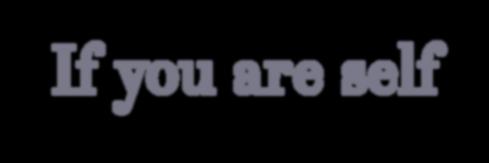
Bimbo Komolafe


Certified Financial Education Instructor, a Fellow of the Institute of Chartered Accountants of Nigeria and a Fellow of the Chartered Institute of Bankers. She teaches financial literacy across FinanceCoachBK platforms. Follow her SM handles for daily tips to help you achievefinancialfreedom andgrowyourwealth. Instagram: Twitter:@FinanceCoachBK Website: www.FinanceCoachBK.com Facebook:Finance coachmoney andwealth
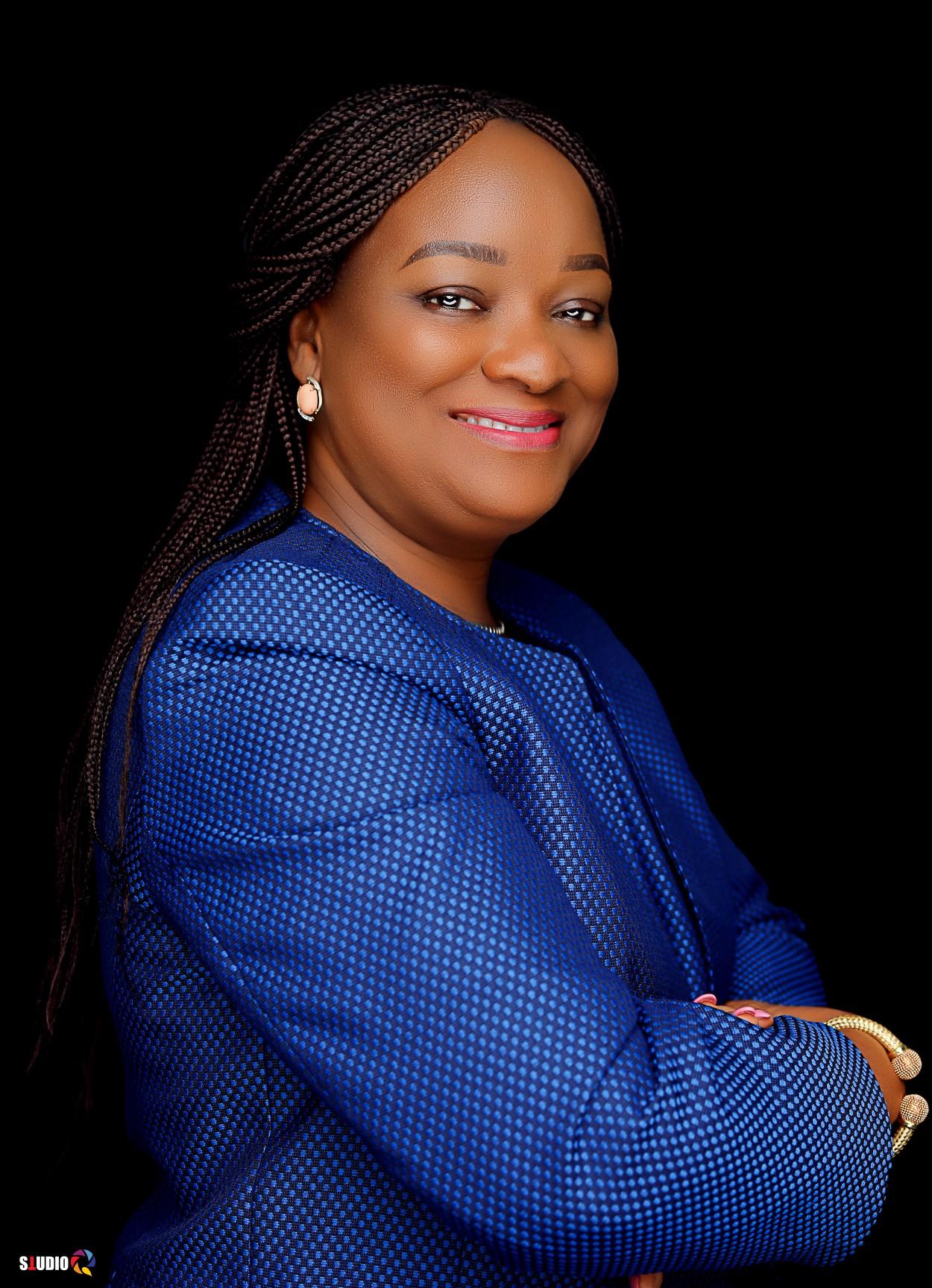
7 A QUARTERLY MAGAZINE
If you are self employed, you will be focusing on further growing your business. It is the period when you solidify your investment portfolio and pay attention to preserving the wealth you have built.
Financial freedom isn t only for your days in active employment but includes the season of life when you can no longer actively work. Don t be among the group of people who work so hard, retiring into penury with nothing to show for their many years of hard work.
R D S F
WHY RELATIONSHIPS FAIL SO EASILY TODAY



Who needs a relationship's safety net when we can hook up and break up whenever we want? When we can swipe left or right, choosing what our stomachs want for the day?
Who needs the wahala and complications that come with loving someone else unconditionally, when we can remain in our bubble, living our lives as though others didn’t exist? These are the reasons why relationships collapse so frequently. People in their 20s, 30s, and perhaps 40s, are finding it increasingly difficult to find their forever person in such a selfish world once boy meets girl and all the excitement ensues, for some reason, the other shoe tends to drop within a matter of weeks, if not days. (Am I the only one who has experiencedthis?)
Why is this the case? This is not the romance that Hollywood has been selling us for years! In Disney fairytales, everyone always lives happily ever after. Jack risks his life in the Titanic for Rose because he cannot handle the thought of her freezing to death (thereisnogreaterlovethanthis). In ‘Me Before You’, even after his death, William guarantees that Louisa is left with a large sum of money, ensuring that she will never go hungry for the rest of her life.
It has been stated that our parents, particularly those of African descent, stayed in partnerships and even marriages for longer than they should have. People of that generation are derided, insulted, and scoffed at (by a younger generation) because they did what many people today are not brave enough to do: they stayed the course, no matter what.





Most people did not know what transpired in the next person's relationship or marriage back in the day. If a situation arose, it was kept hidden and addressed behind closed doors. Although this had its challenges and disadvantages, however, it appeared that relationships lasted a lot longer than what we are witnessing today.



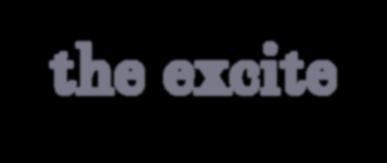



I feel we have let false logic take over our minds, refusing to be vulnerable with this thing called love. We have our strategy in place and our game face on long before the person enters the picture. We say what we don't mean and keep our true intentions hidden. We've become too sophisticated for love and relationships. Love is for those who have no goals in life. For damsels waiting for (rich) men to come and rescue them from distress. In fact, who needs love?
People in their 20s, 30s, and perhaps 40s, are finding it increasingly difficult to find their forever person in such a selfish world once boy meets girl and all the excitement ensues, for some reason, the other shoe tends to drop within a matter of weeks, if not days.

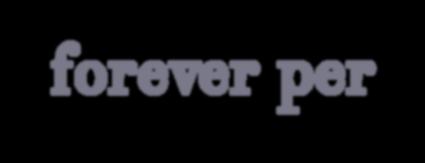
So, once again, I wonder, why are relationships failing at such an alarming rate? The following are some of the factors I believe are at the root of the problem.
1) Inconsistency: This is a personal annoyance of mine. Most relationships start out well, but then things start to go wrong. One partner no longer puts forth as much effort to ensure the relationship's long term viability. They call when they want to and disappear when they don't want to entertain their partner. They ‘love bomb’ you today, and the next day they are nowhere to be seen, hidden in plain sight.
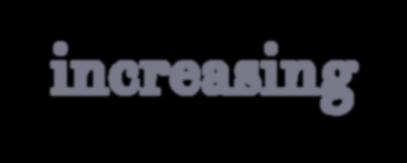

This perplexity or yo yo behaviour might have a negative impact on a person's psyche. Inconsistency in a relationship can manifest itself in areas such as communication, affection, and commitment. Such

THINKING ALOUD | JUL SEP 2022 8
R D S F
behaviour conveys to the other party that they aren't essential or valued, which drives them nuts and brings the relationship to a halt. Or, often, the wounded party stays hoping for a transformation they will never see.
sponsorships. As such, we don't know when to put off that ‘ persona’ and be genuine with individuals with whom we are in a relationship. Some people don't reveal the most intimate aspects of their hearts with their partners, and as a result, the relationship feels more like a chore than something to be nurtured and grown through shared life experiences. In no time, the person seeking greater closeness departs to find someone who will be more open and vulnerable with them.
5) Low Tolerance: Our generation, particularly those addicted to social media and its behaviors, prefer to walk away from a problem rather than work through the process of resolving it. When a couple goes through difficult times together, they can emerge stronger, build trust, and stay longer than if they decided to leave when a problem emerged.


2) Differing Values: Many people make the error of consenting to be in a relationship with someone whose ideals are diametrically opposed to their own. They believe it will not cause any problems at first, but it will. One of the most difficult aspects of a person to change is their value system. Don't get into a relationship with someone who doesn't share your values, as this can contribute to the collapse of the relationship.












3) Different Expectations: One of my favorite pieces is one I wrote lately about ‘managing expectations’ in relationships. A gap in what both people expect from a relationship is another reason why couples continue to suffer. People sometimes rush into relationships without first learning what the other party wants from them.

If you expect him/her to call you every day and take you out once a week and fail to explain it to them early enough, when they fall short (according to your standards), a crack begins to form in the relationship, and it only takes one small incident to cause the entire thing to shatter.

Couples must learn to be more tolerant and forgiving of one another, which are qualities that many couples lack these days. People are eager to vent their dirty laundry on social media, and they are fast to move on to the next thing smoking, declaring, “I don't need you!”“Icangetanother”,or “me,myself,andI!”
This is not referring to abusive or toxic conditions. Please excuse yourself in such cases. However, if it is a matter that may be resolved amicably, you should not give up. It's possible that the grass isn't greener on the other side. People must abandon all childishness, games, and false expectations for relationships to begin working and survive a lifetime.
4) Lack of Intimacy: Living in the social media age hasn't made it any simpler to be vulnerable in relationships. We prefer to project an image of ourselves to gain likes, comments, followers, and even
Evi Idoghor is a Christian, writer, content creator, and a graduate of Chemical Engineering from the University of Louisiana at Lafayette. Consumed by her love for writing and desire to effect change, she launched her online platform in 2018 to tap into her creativity and start meaningful conversations with one goal in mind to redefine status quo. To learn more about her and the content she creates, visit www.letstalknationblog.com

9 A QUARTERLY MAGAZINE
One of the most difficult aspects of a person to change is their value system. Don't get into a relationship with someone who doesn't share your values, as this can contribute to the collapse of the relationship.
Some people don't reveal the most intimate aspects of their hearts with their partners, and as a result, the relationship feels more like a chore than something to be nurtured and grown through shared life experiences.
R D S F
Aloud magazine reaches a diverse readership around
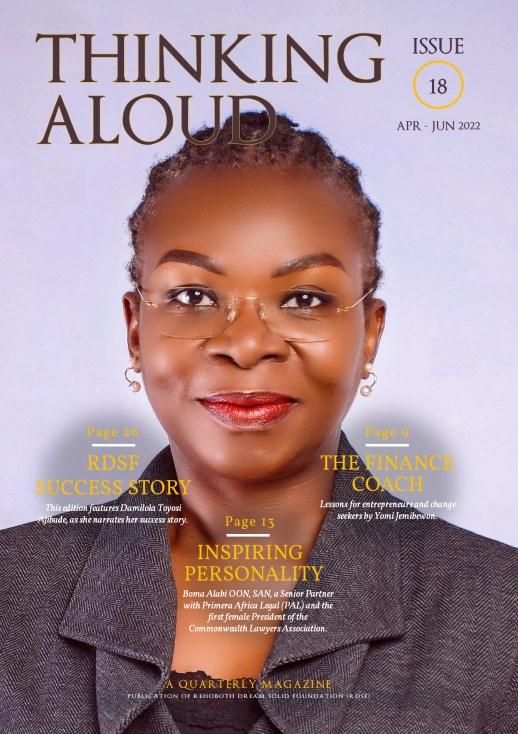
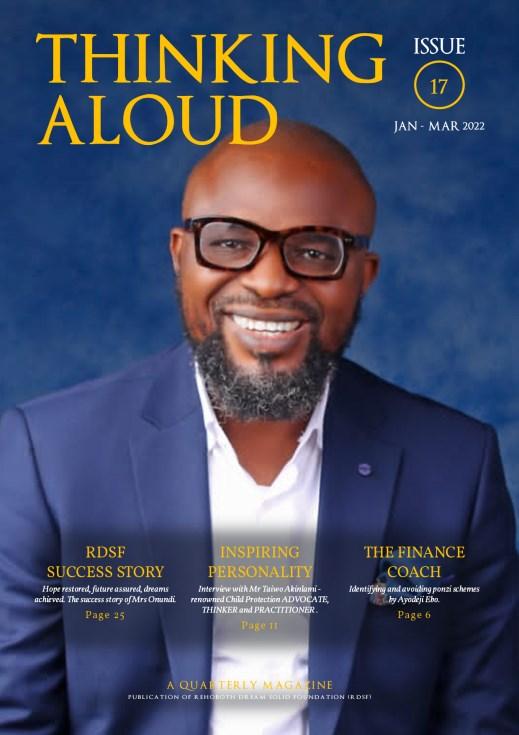
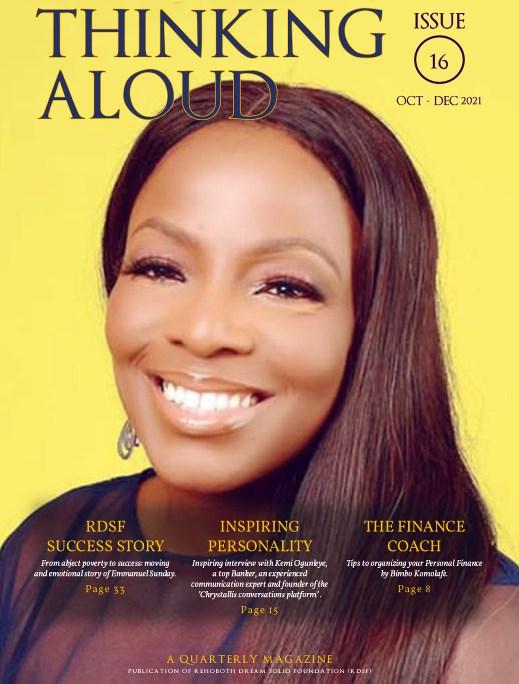
world including Nigeria, Zambia, United Kingdom, United States,
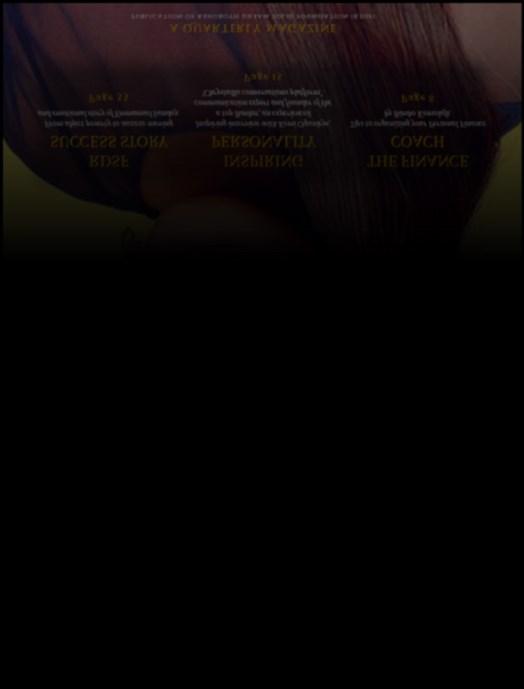
the
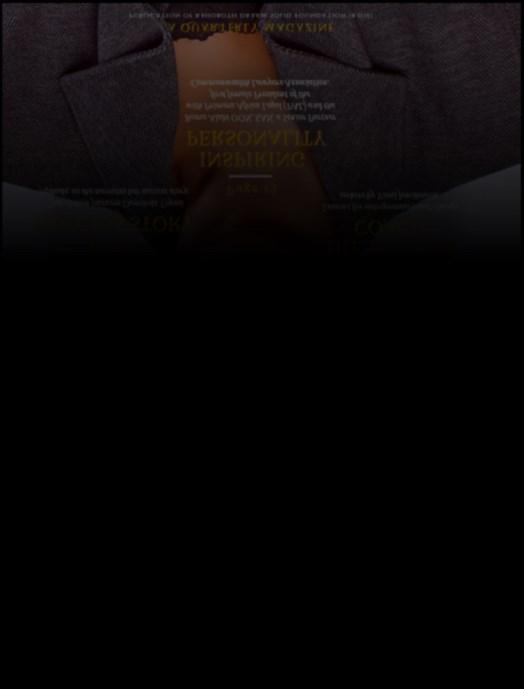


Thinking
the
Australia, Canada and
Philippines. Advertise in the magazine today and experience Growth in your enterprise. Send your advert enquiries to: thinkingaloudpublication@gmail.com
INTERVIEW SESSION WITH TUNDE ONAKOYA

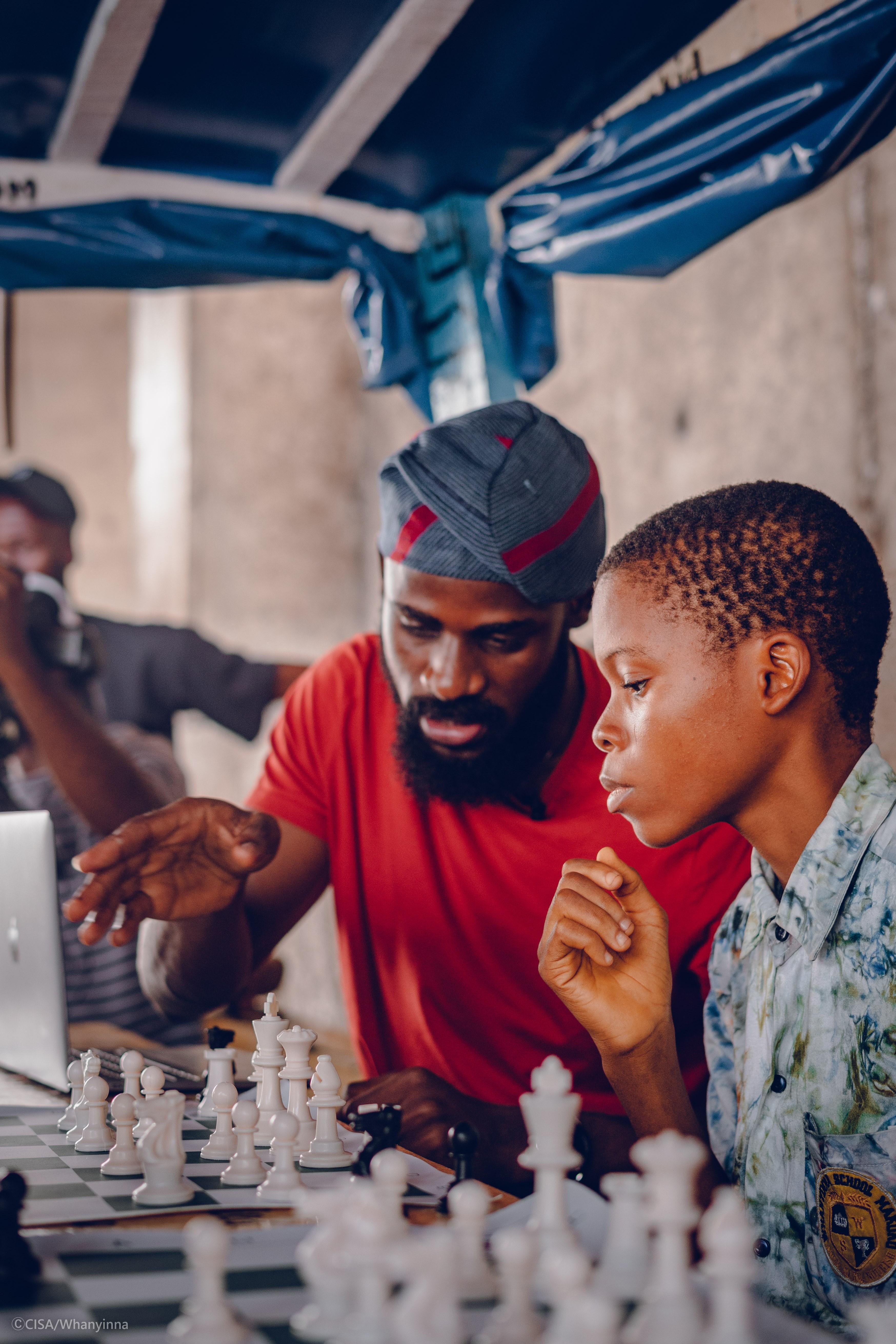
11 A QUARTERLY MAGAZINE
Q1. Thank you for accepting to share your story with our readers. Please tell us about your background childhood, family & education.
Response:
I grew up in a slum community, a riverine area called Isale Odo in Ikorodu, Lagos and I am 27years old. One particular event that has formed a lot of my convictions and understanding of life and the work that I do happened after my primary school certification. My parents couldn’t afford to put me in school at the time and I was at home for two years during which I discovered chess. I wouldn’t necessarily say we grew up in terrible poverty but things got worse with time.
There was a time that we couldn’t afford basic things. My primary school was one made from make shift materials but I attended a private secondary school which was better. I went on to Yaba College of Technology on a scholarship because I was on a chess team. I started playing chess at a really young age of 11 and won my first trophy when I was just 12 years old in JSS 2. That is a little about my background.

Q2. Tell us about your project ‘Chess in Slum Africa’. What is the story behind your passion for this project and how did you start?
Response:





I think that you're more inclined to solve a problem that you understand and you have experienced and for me it was a mix. I was out of school for two years and it took intervention and sacrifice from my mum to go back. During this interval, my passion for the game of chess developed.
When I returned to school, the school had an active chess club and that was what I needed to become very skilful. I had a very weak educational foundation so initially, I couldn't speak much English, and for us at home we only spoke Yoruba at that time. However, my knowledge of chess and the opportunities I had in the private school changed my mindset; that If I could gain mastery of chess, I could become anything I wanted.
That was important for me because it helped me to imagine possibilities beyond the confines of where I grew up. I understood that I could become more because I now had the ability to do something that I was good at it. This may not mean much to privileged children, but it meant the world to me that I could do something and win at it. I remember the first time I came home with a won trophy my dad cried. The whole street was very excited that Tunde won a trophy at chess, and I got a chess board and three thousand Naira cash prize. This was a lot of money then.
home with a won trophy my dad cried. The whole street was very excited that Tunde won a trophy at chess, and I got a chess board and three thousand Naira cash prize. This was a lot of money then.

This is the story of how I discovered chess and it just became my identity. I remember after winning tournaments, things changed for me. I can't explain it. I started excelling in school and began to believe in myself. A lot of the kids in our community wanted to do something different but I wanted to be with my chessboard, and this made me deeply reflective. I wanted to read books and understand the game better.


Q3. How did your upbringing and personal experience prepare you for what you are currently doing with the ‘Chess in Slum’ project?
Response: I was the senior prefect while in secondary school and I was really smart so everyone had this great expectation that Tunde was going to become a doctor and save his family from poverty. This put a lot of pressure on me because I wanted to make my parents proud.

THINKING ALOUD JUL SEP 2022 12
R D S F
FawazAdeoye,winner
‘
ChessintheSlum’ andMental
MathscompetitionheldinDecember2021.
I knew a lot was at stake because of the sacrifices my parents made to keep me in school. They gave up a lot of their comfort to get me through secondary education. That educational environment made me realize that my circumstances were not all there was to life. Chess was what guided me because it gave me the required exposure and created the winning mentality.
I got admitted for Medicine and Surgery at the Lagos State University (LASU) but that was the same year LASU just spiked their fees and even for medical students you have to pay an extra Ninety thousand Naira. My mum and I went from family to family soliciting funds, it was a lot of money, no one could help, so I lost the admission. That was a very painful period for me, I just hated everyone, hated life and my parents for being poor.
Meanwhile, a lot of my classmates travelled abroad and some went to private universities. I took up a teaching job in a local school and one day, my mom came home with Yabatech forms that she collected for me. Now that I think about it, it was just fate. Sometimes you want to fill out the lines yourself, but God is the master planner. He wanted me to go to Yabatech because that was where I could really hone my chess skills properly because Yabatech had the best chess club in the entire country.
This was how I developed the passion to teach children and spend time with them. I quit the job because I was not earning enough, and I wanted to focus on my career and find a way to travel out of the country which did not happen for some reasons.
Between 2015 and 2018, I had taught over 3,000 students how to play chess. Covid 19 lockdown gave me the biggest career opportunity because I started teaching chess virtually and began to earn in dollars. However, this was really demanding and I had to quit in March 2021 to focus on social projects. Charity and sacrifice must co exist and when I look back, I have no regret for those decisions.

Q4. You are under 30 years and not many people of your age are involved with charity or philanthropy (i.e., what we call ‘lifting others up’). You quit your job to focus on teaching disadvantaged children how to play chess; do you regret not doing a regular 9 to 5 job?

Response:
Now, it’s easy to say I do not regret quitting my 9 to 5 job. After I obtained my National Diploma in Computer Science, I returned to Ikorodu, but my parents had to move because things were tough. My dad relocated to Ibadan to work in a bakery and my mom moved to Okota where she and her twin sister worked as cleaners. The rent in Ikorodu was almost expiring, so I had to take up a teaching job where I taught children about computers and music for a paltry sum of ten thousand Naira monthly.
Q5. Please tell our readers how successful this project has been. Can you share with us the number of people whose lives have been impacted and the highest level they have competed at?

Response:




This is a very broad question because when you say impact, there are different ways to view impact. There is something called ‘tokenism’ where people just put things together for photo uptake and say they have impacted the lives of these people. People go to some places, give pasta, and say they have impacted.
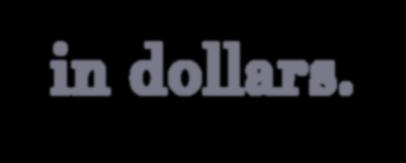

The way we define and measure impact is not just in performances in chess tournaments. Under our project, a lot of children have won tournaments; especially the ones that started with us in Ikorodu. Two of them have represented Nigeria in Ghana and one of them will be traveling to Canada later this year on a chess scholarship.
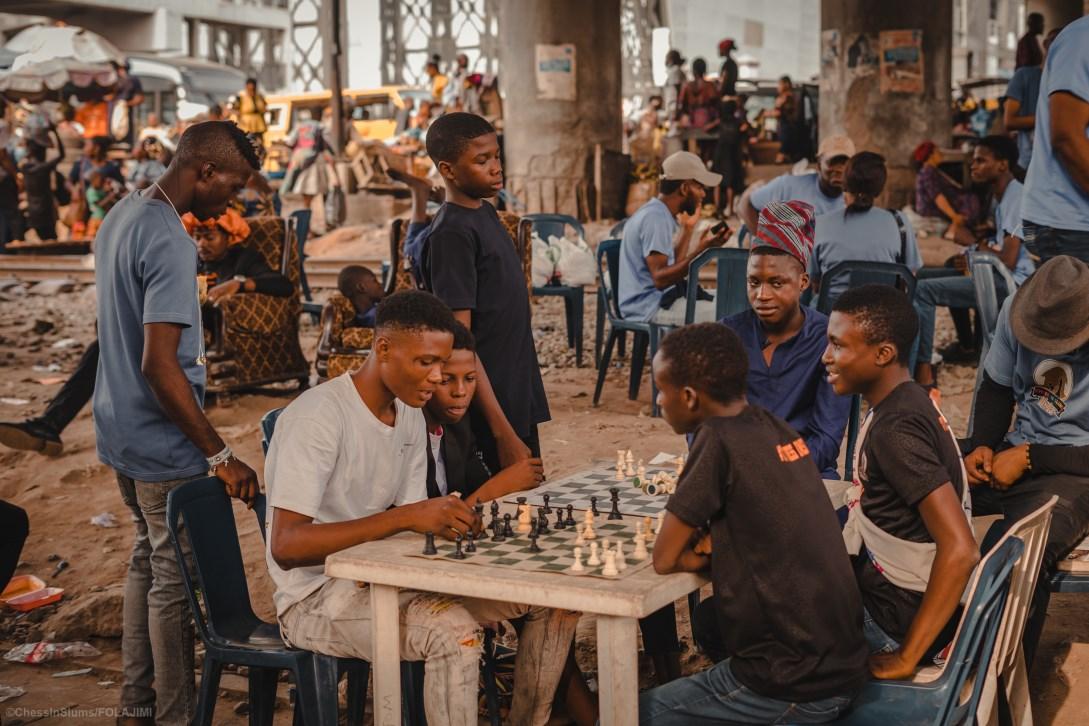
Therefore, in terms of the technicalities of chess and the mastery of it, we have at least one hundred children that are playing at a very advanced level right now.
We recently had a match with the firm Pricewater houseCoopers (PWC) and we won. When the play ers representing the Canadian Embassy came, one of our children beat four of them simultaneously.

| 13 A QUARTERLY MAGAZINE
Between 2015 and 2018, I had taught over 3,000 students how to play chess. Covid 19 lockdown gave me the biggest career opportunity because I started teaching chess virtually and began to earn in dollars.
R D S F
Participantsofthe ‘ChessintheSlum’ competition.
However, the way we measure impact is not just in their ability to play chess because we are not only training them to become chess masters. Chess is a tool to an end goal for us. The end goal is to use chess to deepen their thought process, give them a philosophy for life and an identity that is intellectual. Chess will help them understand that the mind is their greatest asset and when they put it to work, they will get results.
We also have a scholarship support programme for the most vulnerable ones in our academy that don't go to school at all or have dropped out of school. We partner with schools by enrolling them and paying their tuition. We give them everything they need to be in school. We currently have 113 children on educational scholarship, and in all we have been able to reach more than 600 children in Nigeria, Burkina Faso and Mauritius. This captures our impact in numbers but for us, impact is end to end and not just numbers.

Q6. You work with some young people and there are many success stories coming out of your projects. How do you gain the trust of these youngsters given their disadvantaged backgrounds?
Response:



We try to incentivize them. I remember when we went to Oshodi, what we used to lure them was to give them food after every training and because these children don’t even know where their next meal would come from, they gladly stayed to participate.
We use different strategies for different communities but we mostly used food. When we talk about the slums and poverty, people don’t understand what poverty is. We only see poverty as being broke but it is much deeper than that because poverty is multidimensional and psychological.
The World Bank says 100 million Nigerians live in multidimensional poverty; 100 million sounds like just a number but these people exist. The ones that are intricately linked to these statistics in these places are the children because they are deprived of their basic rights to education, food, water, hygiene etc. The poverty is bad, so even the most basic things would attract them. Most of them do not know what chess is and neither have they seen a chessboard before. Their parents would rather have them do menial jobs to support the family instead of
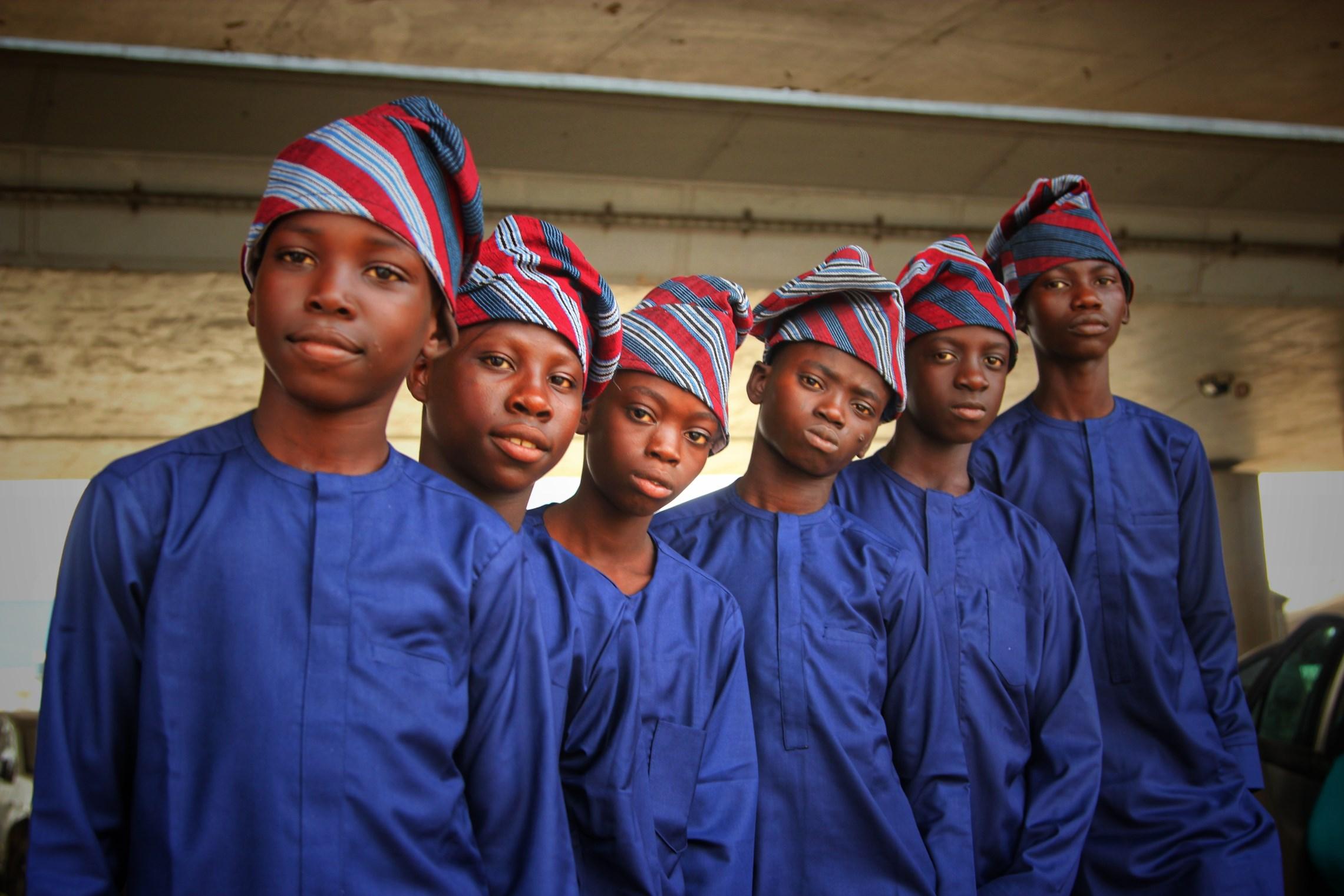
R D S F



THINKING ALOUD JUL SEP 2022 14 |
We currently have 113 children on educational scholarship, and in all we have been able to reach more than 600 children in Nige ria, Burkina Faso and Mauritius.
Someofthe51Traineesduringtheone monthprogram beforethe ‘ChessintheSlum’ competition.
going to sit down to play chess. Therefore, when we get to a community, we profile the children and do vulnerability assessment.
We go to their parents to obtain their permission. We help the parents to understand that if a child that is supposed to be learning is doing menial jobs to support the family, then they are depriving that child of his/her childhood. With this explanation, most of the parents end up granting the permission because ultimately, they want the best for their children. We help them understand that what we offer can change their lives.
Q7. Coming from the western part of Nigeria, do you encounter language barrier as you try to access some of these communities? What are the main constraints you face on this project?
Response:





Most of the people of Makoko community don’t speak regular Yoruba, they speak Egun and I don’t speak Egun. To overcome this language barrier, we engaged the parents through the community Chief.

We also used some young adults in the community who had to learn chess to teach the children. Some of the children were also very useful in helping to translate. Though we don’t speak the same language, we were able to communicate despite the complexities of the game and the terminologies.
We also had language barrier when we went to Burkina Faso. Despite this constraint, we communicated successfully but that’s the beauty of the game.

It is a language on its own and a way for people to connect. Chess is a practical game, and you don’t have to say a lot of words just like music and football. The major challenge at the beginning was money. I wasn’t earning much and at a time it was a constant struggle. Another constraint was the complexity of dealing with children compounded by the fact that most people did not understand what we were doing.
There are also some other things that we have to be conscious of even as we worry about their parents. Due to the peculiarity of their financial circumstances, most parents make unusual financial demands from us. As help comes to a child, the parents also want financial support. In the interest of our program, we have to introduce incentives to them to secure their support. For instance, in Makoko on international mother’s day, we gave N50,000 each to some parents. We do that occasionally to achieve our mission.
15 A QUARTERLY MAGAZINE
Chess is a practical game, and you don t have to say a lot of words just like music and football.
R D S F
Q8. People around the world are getting to know you and the project ‘Chess in Slums’. There are positive stories of some of the beneficiaries experiencing things they never thought possible with their lives changed for the better. How do you feel when you see them relishing in their victories? How do their families react and is there adequate support from parents and guardians?
Response:
My philosophy for life is that ‘fulfilment is through others’. One thing that makes me very happy is the success of other people and this is something I understood a while ago.

I am aware that my purpose is to create room for other people; that is where I am gifted. I can tell the stories of other people in a way that will galvanize action, compel people to think and give them the opportunities they deserve.
This is what success means to me and it makes me very excited as excited as anyone else that reads the tweets and celebrates children like Basirat, Ferdinand, Fawaz, Michael and other children. Ultimately the story is not complete yet, because the true essence of the story when it comes full circle is when the children in the future now get to tell the stories themselves.
Our vision is to reach a million children and if just one child can change the world in some way or build some technology that would change the lives of billions of people, then our work is done. It is about leaving the best part of myself with other people, especially the impoverished ones that will never get a chance to live out their true potentials. When that happens, I go to bed with a deep sense of fulfilment.
For the parents, I remember when this little boy with cerebral palsy won the tournament in Makoko. The Mother came dressed in gele (headgear), she was so proud of him, and we took some pictures of them together.
Every parent wants to see their children excel, it hurts a lot when you know you want to do something within you but you don't have the resources to implement it but then against all odds, the child now has something to offer.
The child that everyone had written off now becomes a superstar that the Governor wants to meet. For many parents in these communities, seeing that their children are gifted, and that poverty doesn’t define their intellectual capacity gives them unspeakable joy and compels them to give their children the encouragement and opportunity to go to school, because they now see value in learning.
Q9. How do you recognize a gifted child? What is your selection process like? After teaching that child the game of chess, how else do you nurture them? Do you have a follow up mentoring program?
Response:
I believe all children are gifted. You just need to understand the mechanism to unlock the gifts and potentials in them, because children learn differently. Children that are slow in the uptake in school are quickly classified as dullards. This is one of the things wrong with the educational system in Nigeria and it has ruined a lot of lives.

For example, I never wanted to study science courses. I wanted to be a lawyer or an economist, because I loved economics and I was good at debate, but my teachers prevented me from attending arts classes, they told us that arts subjects were for dullards. You can see how flawed the educational system was then. In other climes, education is seen as a goal and not just about certifications. When a child is not gaining much through your teaching technique, it calls for a change of approach till you get a result oriented approach.
Chess for me is like an alternative solution to help children learn differently. In Chess, no two games can ever be the same. The number of possibilities in chess after the first four is more than the number of atoms in the universe and that gives endless possibilities.
Take Ferdinand, the boy with cerebral palsy for example, he doesn’t speak and doesn’t do anything, but through chess, we found out that he wasn’t disabled. He was just ‘differently abled’. He has a very sound mind. Now he is in school and doing well. Chess opened that part of him that nobody knew existed. Every child is a genius, we just need to find a way to bring out what he has. Chess is a great tool!
Q10. What’s your mentoring programme? Do you have one? How have you nurtured them?
Response:
Yes, we have a mentorship programme. Once every month, we invite societal role models to speak to the children. Professionals with different experiences are also invited to talk to them. Doctors,
R



F

THINKING ALOUD JUL SEP 2022 16
I believe all children are gifted. You just need to understand the mechanism to unlock the gifts and potentials in them, because children learn differently.
D S
architects and other professionals. When they come, they are made to play chess with the children.
If they don’t know how to play, a child is asked to teach them and there is an exchange of value. Our mentorship programme is called ‘Trust Without Borders’. It is a way through which we connect societal role models and career professionals with children for mentorship. For most of the children in the slums, they have never related with this category of people before. All they know is from what their parents told them about doctors and other professionals, or what they see on television, yet they desire to be one. We have recognised this gap and are bridging it via ‘Trust Without Borders’. That is part of our mentorship programme.
Q12. There are many vulnerable young people out there requiring mentoring and opportunities to turn their lives around. Enlighten our readers on the numerous projects your team is currently executing to touch these lives.

Response:
We have outreach programmes. Our previous projects are community based, where we have structured learning programmes for children in communities like Makoko, Majudun and Burkina Faso. But the Oshodi ‘Under Bridge Outreach’ was different. We went out of our regular jurisdiction to do something new with other children we could not capture under our regular programmes. We focused on street children that ran away from home or orphanages. We believe that there is a circle that births the street urchins (known in Lagos as ‘ area boys )’, so we went there to make a difference.
We try to showcase their potential and not their weaknesses. We put the stories out to encourage others that all they need is an opportunity to actualize their potentials. We are achieving good results. However, there is still a lot of work to be done for millions of children out there. We all need to know that as the world evolves, we must think of a future that is deeply inclusive. In other words, no child should be left out.
Q11. Apart from using chess to change the lives of the less privileged children; which other activities do you engage in and do you partner with educational NGOs for projects?

Response:
Yes, we have been involved in several partnerships in the past, though our focal point remains chess and we want to stay focused. We have partnered with a health organization in the past to provide health services to children in our academy. We have also organised coding, skills acquisition and other educational programmes for the children. We will continue to consider relevant partnerships with educational institutions and non profit organisations as long as the solution is sustainable, and it is community based. The impact must also be all encompassing.
Q13.The story of your efforts with these young people is gaining ground with more people interested in supporting your projects. How can individuals and organizations partner with you to make greater impact?
Response:
The responsibility to change the life of a child is one for everyone. We all have a role to play. We need to come together in different ways to positively impact the lives of the underprivileged children around us.
To partner with us, kindly send us an e mail (partnerships@chessinslumsafrica.com) and we will work something out.






Q14. Your project has shown that there are some intelligent children in the slums of Nigeria. What role do you think government can play in improving the lives of these individuals in the slums and how can they give them access to education?
Response:
The Government has the resources but there is not enough political will to tackle the situation. Sadly, they will rather focus on less important things. Education is a fundamental building block in the development of every nation. The most successful nations are the most educated ones, this is obvious.

| 17 A QUARTERLY MAGAZINE
We have partnered with a health organization in the past to provide health services to children in our academy. We have also organised coding, skills acquisition and other educational programmes for the children.
R D S F
It is dangerous for the Nigerian government to ignore investing sufficiently in education. Doing so will be equivalent to building a faulty foundation for the structure of the country. Beyond this, there is an urgent need to change the educational curriculum.
We cannot stick with the old curriculum if we want a brighter future for our children. Teaching methods must be changed. In summary, the Government needs to rethink the entire educational policy, invest in the teachers, get quality teachers and make the schools safe for learning. To achieve all these, the national budget for education must be enhanced.
Q15. There must be other success stories. Can you tell us which of your turnaround stories you are most attached to and why?
Response:
We have had some very exciting success stories. I think the one that is most special to me is Ferdinand’s story. This is because he inspired me. For a child that does not talk and very reserved to become a chess champion, that thrills me. I remember when we went to Abuja together, we didn’t talk on the entire trip. It was just beautiful to see him lit up. He is a completely different child now. From a child being bullied to being a celebrity. It will always be a special story to me to know that something I
created gave this child an identity that became a part of his life forever. It is not a feeling that many people get to experience in their lifetime. It really inspired me to go on with the Oshodi project, which brought us even greater success.
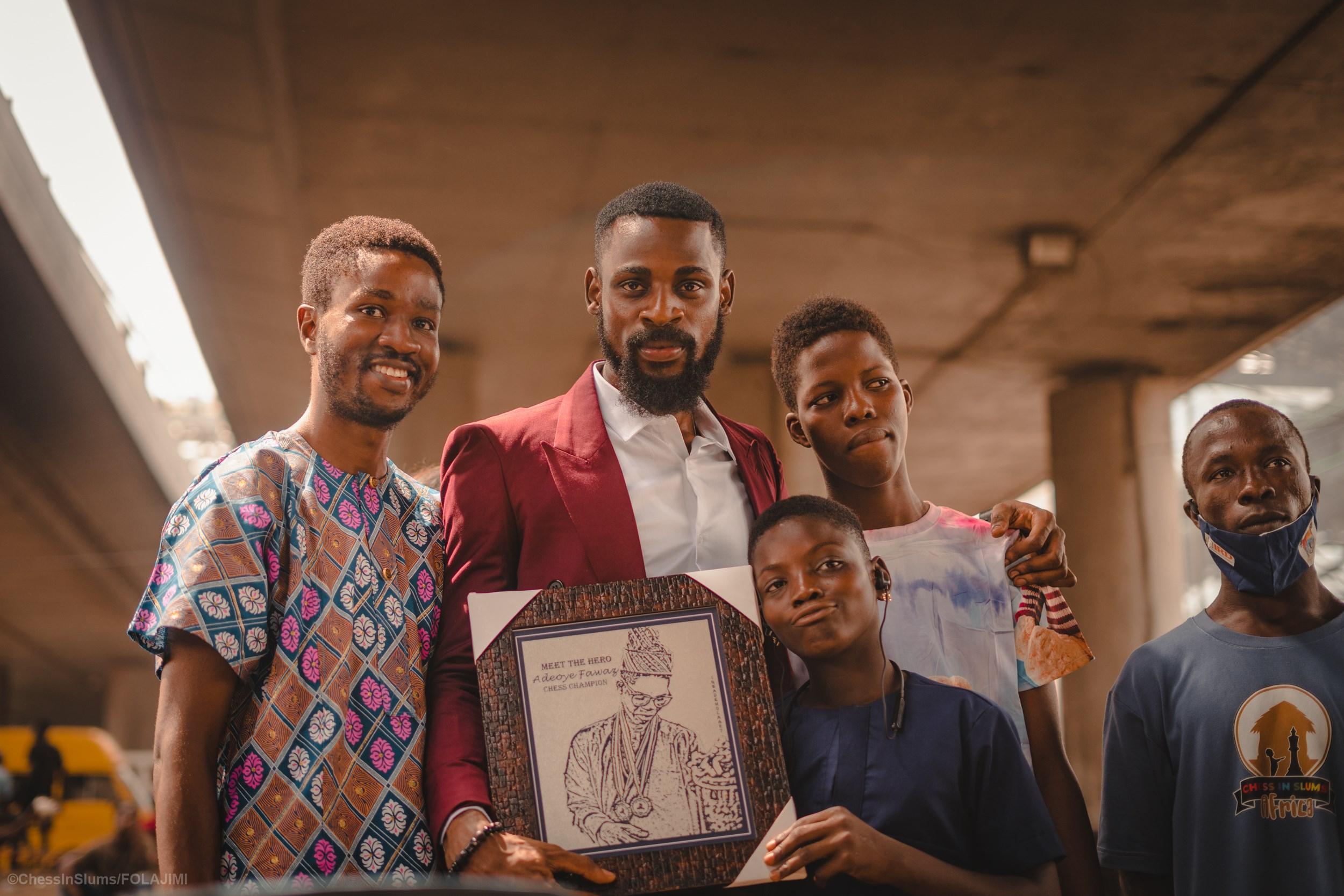
Q16. We know you now run two shelters for these children. One in Ikorodu and another in Lagos. How are you able to fund and run these homes given the high cost of living in Nigeria.
Response:

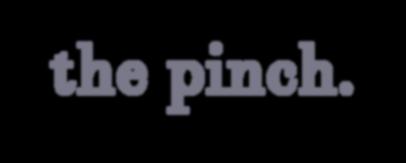



It has been tough because everything has become expensive. For instance, on food alone, we currently spend about four times what we spent in January this year, on the same quality. I am not really worried for myself, I will always manage, but I am worried for the very poor people around. They are the ones feeling the pinch. It is difficult to predict the future, but I pray things get better. I also pray for the courage to accept the things I cannot change.

THINKING ALOUD JUL SEP 2022 18 |
I am not really worried for myself, I will always manage, but I am worried for the very poor people around. They are the ones feeling the pinch.
R D S F
the country as a whole and particularly, at the grass root? What do you think is the level of general awareness of the game of Chess in Nigeria, particularly in the low brow communities?
Response:



Yes, there is the National Chess Foundation (NCF). My assessment is that the game of chess still has a lot of grounds to cover in terms of acceptability, spread and impact. I am hopeful that the work of ‘Chess in slums’ will revolutionise the management of the game in Nigeria and take it to its rightful place. We are going to introduce chess in public schools in partnership with the government and it is going to become a national legacy for us. This is because chess is an invaluable educational resource for children to help them in critical thinking and creativity. Chess is valuable in a lot of these soft skills that the world is now asking for in employment. Also of importance is that chess provides children the opportunity to learn at a very young age.



Q18. It must be a new world for you not to be able to go to the mall without few people recognizing you. How are you handling the fame that comes with your very successful projects?

Response:



It’s hard! I can’t go anywhere freely now. When I travelled to Mauritius, over five people recognized me in another country! I see fame as an important tool which should only be used to achieve a goal.
It is one thing to be famous and another to be influential. I am happy my projects have impacted peoples’ lives. People see me outside, they want to pray for me, hug me, pay for the things I buy, they want to sit down and just talk about chess in slums and a lot of people follow the project.
This shows how much impression and impact our work has made in peoples’ minds. Many now know that it does not really matter where you are born or how disadvantaged you may be. They have learnt through our experience and advocacy that great things can emerge from little things.
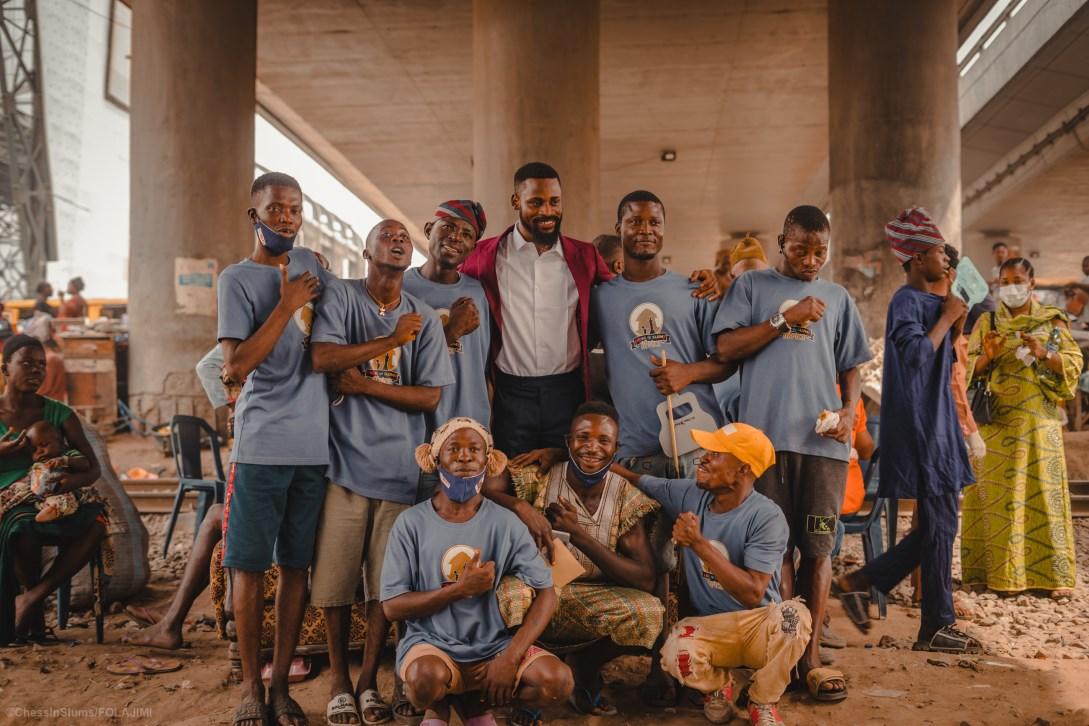
| 19 A QUARTERLY MAGAZINE
Many now know that it does not really matter where you are born or how disadvantaged you may be. They have learnt through our experience and advocacy that great things can emerge from
R D S F
‘ChessintheSlum’ participants.
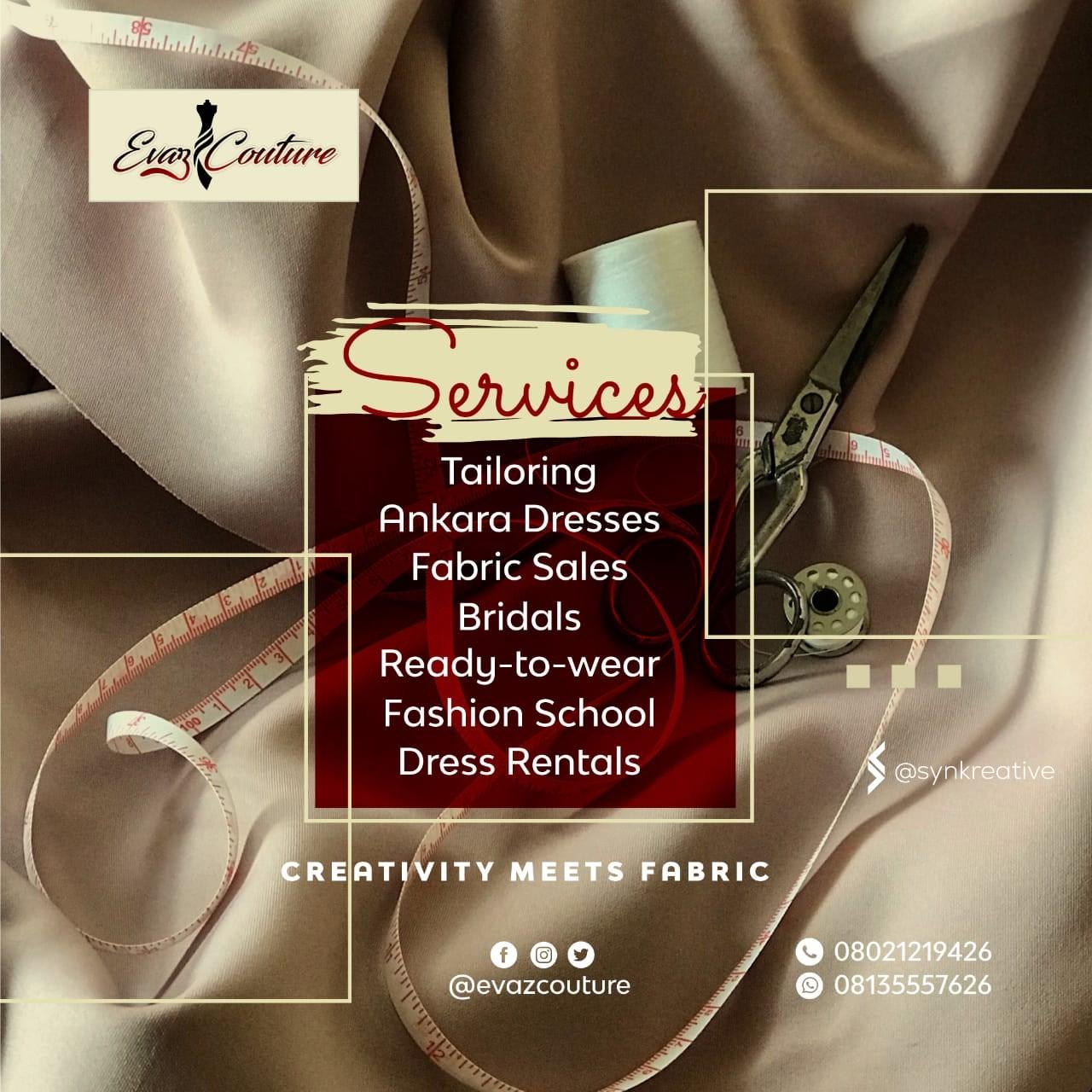

Q1. Tell us a bit about your background childhood, family & educational background.
Response:
My name is Dr Yinka Opadiya and I’m a pastor. I’ m married to Dr Reverend Joshua Opadiya and we have two adult children a son and a daughter. I come from a humble but blessed family raised by my parents, Pastor Paul Adedeji and Mrs Florence Adeyela Komolafe. I have a big family with many siblings, seven direct and eight half’s. One of those siblings is my fraternal twin brother, Kehinde Komolafe, we did almost everything together during our younger years.

We grew up in Owo, in Ondo State, Nigeria. That is where my educational journey began Owo was not only my literal birthplace but also the place where my love for education was birthed. Education is one of my passions and I’m very grateful it has given me rich experiences across many countries.
After Owo, my first stop was Akure and Benin for my secondary school education and then the University of Ife, Ile Ife, for my tertiary education. My university course at the time moved me to the University of Abidjan in Ivory Coast and the University of Caen, France and I graduated with a B.A French in 1982. I bagged a Master’s Degree in French at the University of Ibadan in 1985, focusing on Literature.
After many years dedicated to learning, I progressed to the other side of education teaching. My lecturing career began at the Adeyemi College of Education, Ondo. From there, I briefly went to lecture at Ago Iwoye University before I moved on to Lagos State University, where I was before I
RDSF TRUSTEES CORNER
joined my husband in Austria. While I was in Austria, I completed my doctorate degree, also in French (Women’s Literature) in 1998.
On the ministry side, I did a stint serving at The Realm of Glory Bible School while in Lagos and later attended a Church Planting and Pastoral Ministry School in Nashville, Tennessee, USA.
From Austria, my husband and I moved to Sydney, Australia in 1999 to start a church. Today, I’ m a full time Senior Pastor at Every Nation Christian Church in Sydney Australia. My husband and I oversee the multi congregational church with a passion to leading people into a vibrant personal relationship with God and equipping them to do the same for others.
Right now, I wear many hats I pastor, teach, preach, mentor, research, run university and high school outreaches and also perform various administrative work as needed by the community.
Response:

Hmm… Yes! My dad of blessed memory loved education. Everyone around him knew that especially all his children. There was no question about that. In those days, we went through some financial hardship, and I got sent home for unpaid school fees.
Rather than dwell in pity, I would think of the many children in the same situation and wished I could do something to help. It brought me great joy when my school principal offered to pay for my tuition.
I was very touched by that gesture, and I will never forget it. From that moment, I decided I would take every opportunity to pay it forward and give back to the community.
THINKING ALOUD | JUL SEP 2022 21
Q2. Is there anyway your upbringing has influenced your choice of charity?
R D S F
DrOpadiyaandvolunteersatEveryNationCampusministry.


Q3. Are there other charity organisations you volunteer for?

Response:
Yes! There are a few here in Australia that I get involved with, mostly charity organisations that help young people who have disabilities.
Q4. You serve on the board of trustees of the RDSF, can you share with us what influenced your decision to join the board despite it being a pro bono service?

Response:
First, I thank God for his grace and calling. I truly believe that serving on the RDSF board is a calling. RDSF has a God given mandate to advance the socio economic well being of the less privileged by supporting and promoting their education. As a well educated woman, I believe in doing what I can to make this possible for others. This cause touches my heart and is something I want to be part of.
Two key things have played a great part in my passion for what RDSF stands for. First, the heart God has given me for people. The second is my role as a leader and a mentor. Both enable me to connect with people in a fruitful way. Indeed, it’s these attributes that have taken me through different charitable work I have done and still enable me to achieve what I do today.
I truly believe that serving on the RDSF board is a calling.

Q6. The RDSF focusses on economic empowerment through charity activities in education, mentoring and skills acquisition. In your opinion, what is the most challenging problem confronted with the educational system of Nigeria?
Response:



This is a difficult question to answer from my end, especially as the education system in Nigeria has changed since I studied and taught there. From my observations, one thing is clear though, the age long issue of poor governance and poor funding is at the top of the list of challenges.

| 22 A QUARTERLY MAGAZINE
school outreaches and also perform various administrative work as needed by the community.
R D S F
Q7. What project executed by the Foundation would you consider the most emotional to you and why?


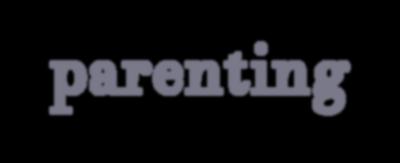

Response:
It might sound as though I’m repeating myself but that’s how much this means to me it is the charity
marriage relationship is no exception. I count myself graced and blessed to be married to my dear husband, Dr Joshua Debo Opadiya.
Q10. On parenting, we have seen a rise in social vices within the last few years amongst our youth. As someone who has been mentoring young ones, kindly share your thoughts on how this menace can be curbed in our society.

Response:
Parenting is also about relationship. As I said, there’s no perfect relationship. There will be good and bad seasons as far as the relationship between parents and their children is concerned. There is so much to say about social vices among the youth of today. I’m not going to say parents are responsible for them all, but I think there’s need to rethink our style of parenting vis à vis our present day culture. I recently heard someone make this interesting comment, “there are no bad children, only bad parenting”. Sounds weird, right? There you go! Food for your thoughts.
Q11. What advice do you have for our readers on ensuring work life balance?
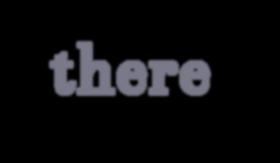
Response:
I’d encourage everyone else who has ever thought about making a difference in life to put up their hands. If this is the sort of thing you are interested in doing, join force with those people who are already doing something and making a positive change. Or you can start somewhere small and don’t forget that Rome was not built in a day. Every step counts.
Q9. You have been married for 36 years. Can you share with us some of the marital values that has kept your marriage?
Response:
God’ s grace it empowers us to love each other in a way that has allowed us to build a marriage that endures through many seasons of life. Christ centred living no matter what is going on in our lives, we strive to be more Christlike. We strive to relate like he would.
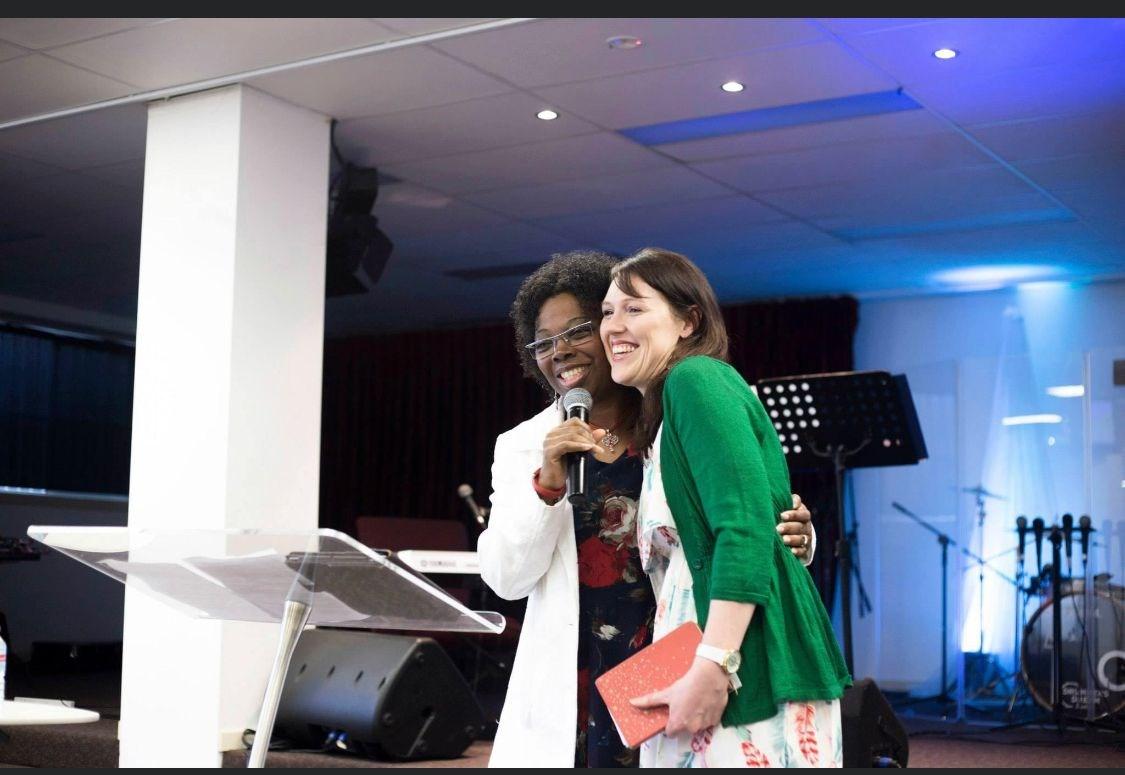
Forgiveness maintaining a humble spirit and being quick to forgive one another is important. This is key in any relationship. Keep learning We keep learning relational skills so we can be more Christlike and be better.
Marriage is a life long journey. I like to think of marriage as starting a track race. You don’t finish until you get to the end. Life is full of challenges and we will have them whether we want them or not. There’s no perfect relationship and the
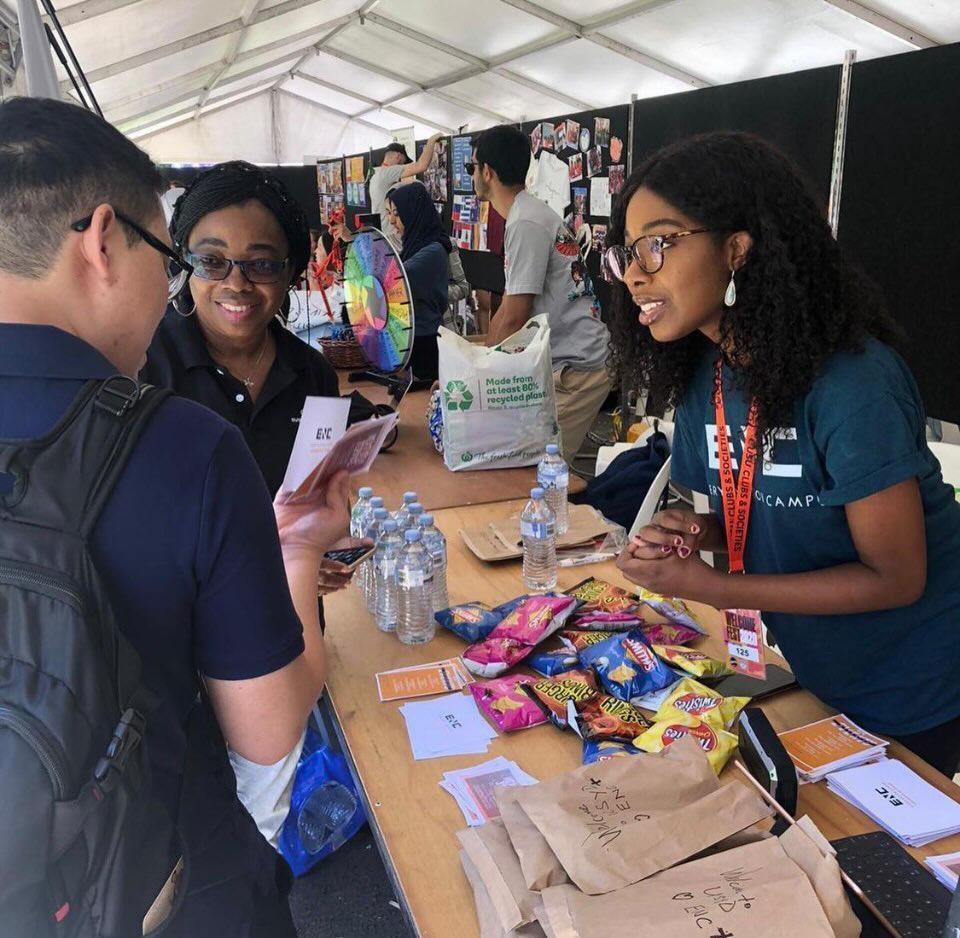
Response:




Stop, rest and restore if we need to be here for longer and make a real impact with the life we’ ve been given. All work and no rest (or play) is not sustainable or good for one’s health and wellbeing. Longevity requires intentional rest, which can look different from person to person. Engage in activities that keep your mind and body most at rest and you’ll be here for the long haul (God willing).

THINKING ALOUD JUL SEP 2022 23
I recently heard someone make this interesting comment, there are no bad children, only bad parenting”. Sounds weird, right? There you go! Food for your thoughts.
R D S F Pastor(Dr)MrsOpadiyaandRoisinWelsh atawomen’sevent. DrOpadiyaanddaughter,Angelique,atacampusevent.

LATEST UPDATES FROM RDSF

neurial development. Some of our beneficiaries have also been supported with business grants in the past. In June 2022, the Foundation organized a webinar on Artificial Intelligence (AI). The aim of the webinar was to introduce data science/analytics to participants and reveal to them the opportunities that are embedded in such skills. In August, thirty of the participants were enrolled to proceed on hands on virtual training sessions on the use of some AI tools.
They were exposed to the use of ‘Alpha Anywhere’, a low code tool used for the creation of mobile and web applications; ‘SnatchBot’, an intelligent virtual assistant platform, and data analytics tools such as Knime and Microsoft Azure. After the training sessions, participants were required to present a mini project and three of them were presented with cash prizes of N50,000 for the best project, N30,000 for the 1st runner up, N20,000 for the 2nd runner up. Ten thousand Naira consolation prize, each, was also given to three participants.
The RDSF scholarship AWARD program





The World bank has stated that Nigeria has the highest number of out of school children in the World. RDSF is committed to ensuring that indigent but brilliant students are encouraged to remain in school and achieve their dreams. We believe in the ripple effect of giving young people the opportunity to achieve their dreams through access to education.
Currently, we have 43 students in primary, secondary and tertiary institutions receiving continued financial support from the Foundation even as we prepare to adopt more tertiary students via the 2022 scholarship application programme. The application portal was opened on the 1st of April this year and 484 students applied. Our scholarship team is currently running background checks on prospective beneficiaries who have passed our initial screening stages. After the background checks, a new set of beneficiaries will be recommended to the Foundation’s board of trustees for approval.
RDSF impacting young lives through her skill up programs. One of the many ways the Foundation impacts the lives of young Nigerians is through its skills acquisition programme. The Foundation has been organizing workshops and hands on classes on a wide range of relevant courses targeted at empowering undergraduates and young graduates with the requisite skills for career and entrepre-
Some students saw the force holiday brought about by the Academic Staff Union of Universities strike currently ongoing in public tertiary institutions in Nigeria as an opportunity to learn a new skill and develop their creative ability.
WINNERS OF THE ARTIFICIAL INTELLIGENCE TRAINING HACKATHON
Ipaye Abdullai is a medical student at the University of Lagos. After the AI training, he was able to create a mobile application for the Foundation to promote the RSDF programmes and to enhance communication amongst stakeholders. He also designed an artificial response robot called Mediplus. This project is targeted at visitors to hospitals to reduce physical contact and reduce the spread of communicable diseases. The platform can be used to provide services such as hospital appointment management, medical consultancy, bills payment, counselling and call for an ambulance.
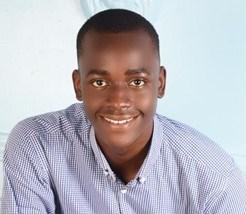
| 25 A QUARTERLY MAGAZINE
R D S F
George Stephen is a student of Federal University of Technology, Minna. After the AI training, Stephen designed an application to connect subsistent farmers to investors along the agricultural value chain; processing, logistics and distributors and ensure farm produce are maximized to reduce food prices and scarcity. He created a bot he named Andy to assist in providing answers to FAQ by users of the Foundation’s website.
cy. I learnt the EPIC approach to solving problems. I didn't code, but I was able to understand the mindset of a software engineer. Most importantly, I was able to understand that artificial intelligence is something that can be applied in every field of study. I honestly want to thank every member of RDSF that made this training possible. I also want to thank our ever able trainer Mrs Opeoluwa Iwashokun. I am truly empowered!!!
My name is Unigwe Emmanuel, I am a medical student at the University of Nigeria. I am passionate about two things; one of which is the application of Artificial Intelligence in the field of human medicine. I believe having medical practitioners who are grounded in Artificial Intelligence would be an invaluable human resource for the health sector of any country as they would bring to bear the benefits of AI on the practice of medicine. This is why I have decided to embark on this journey and being a part of this class has helped change my mindset. I now understand that AIis not far fetched but doable and with the right mindset, motivation, community, and support I could do this one thing that would give me a sense of fulfilment in life. With the motivation and mindset, I have gotten from the RDSF AI classes, I have enrolled for the next big thing of in life, a one year full fledge Software Engineering program. Thank you RDSF.
Daramola James is a Computer Science student of the University of Ilorin, Kwara State. After the AI training, Daramola was able to effectively use all the AI tools introduced to him; Knime analytics, SnatchBot and Alpha Anywhere. He built a mobile app to solve hostel accommodation problems peculiar to his school. He also created a bot that provides relevant information to intending and new students of his school.
TESTIMONIES FROM SOME PARTICIPANTS OF THE ARTIFICIAL INTELLIGENCE TRAINING



My name is Ipaye Oluwamuyiwa. I am currently studying medicine and surgery at University of Lagos (Unilag). I am also into teaching other students forex trading. My journey throughout this training has been quite inspiring. It has really been basically serious practice, creativity and consisten-
My name is Moshood Olaitan. I am currently an undergraduate student of mechanical engineering in Obafemi Awolowo University. I also repair computers and I deal with both software and hardware problems in computers. In this training, we dealt with the data aspect of AI and I learnt low code tools like Alpha Anywhere, SnatchBot , SQL server management studio and knime. I have learnt a lot from this training and after this training, I will use these tools to take the services I render (computer repair) to the next level.
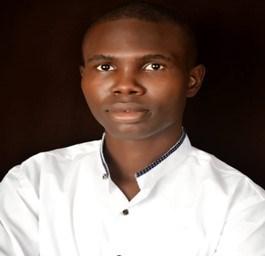
My name is Akpan, Miriam Godwin. I am an aspiring student. I have always wanted to start a tech journey and I really needed a guide. During the course of the programme, I learnt that Artificial Intelligence (AI) is not only about coding and that good designs isn't just about codes, but the ability to express your ideas clearly. I learnt many no or low code tools like; Alpha Anywhere development IDE: IT developers can use the Alpha Anywhere low code environment to develop complex web or mobile business apps from scratch. SQL Server Management Studio; an advanced development environment that enables us to configure, manage and administrate SQL Server database engines.
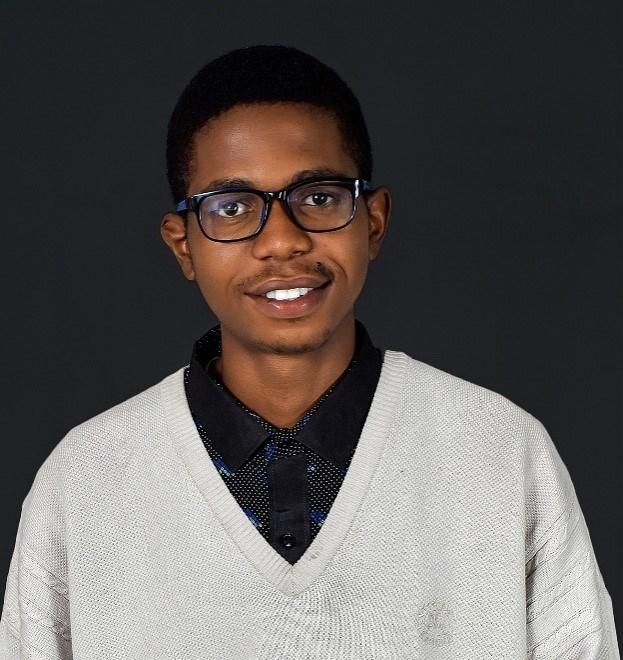
THINKING ALOUD JUL SEP 2022 26 1
R D S F 2 3 4
SnatchBot; an Intelligent Virtual assistant platform Bot for building websites (the most interesting) and others. I really appreciate the opportunity to be a part of this program all thanks to RDSF and our tutor Mrs. OpeoluwaIwashokun
My name is Adewale Oluyede and my expectation for the class was to understand how to utilize AI in my career as a financial accountant. During this training, I learnt a lot, but the snatchbot class was what I found most exciting. My next line of action is to explore the snatchbot to earn additional income for myself. Thanks to Rehoboth dream solid foundation for this opportunity.
I am Adeaga Abiodun, a teacher with Education District IV, Sabo Lagos. My expectation was to see the trainer unravel the mystery behind Artificial Intelligence, get basic knowledge to build simple applications for my use and later for the use of others. The training exposed me to the possibility and simplicity of using applications such as Alpha Anywhere, SnactBot and Knime to design and present data in a systematic way. I learnt that every product and invention started with an idea, we must know the problem we want solve and deploy the appropriate application to solve it.
Design is not just about codes but the ability to express your idea. The SnactBot class was so interesting in the sense that you get response from customer service without him/her being available. AI is the new order for any organisation or business that aims to make impart in the world of today.
Thank to Mrs. Opeoluwa who demystified AI and a very big thanks to Rehoboth Dream Solid Foundation for this rare opportunity.
I am George Stephen an undergraduate of Federal University of Technology, Minna, I really appreciate this opportunity, before the training, AI sounded like a myth to me, I needed more insight and my expectation was to explore and learn more of AI. I got insight to AI, what it entails and learnt how to navigate some AI related tools, how to build low code applications with Alpha Anywhere, how to create bots that can be integrated across various platforms and data analysis with knime.
Snatcbot was the most exciting of my experience and well understood. Thanks to RDSF for the opportunity and thanks to our tutor Opeoluwa. Throughout the training she tried to carry everyone along and was always patient to make sure we understood what was taught. The training was filled with so much value.
My name is Okegbemi Joshua, a first year computer science student of Federal University of Technology, Akure. I am so elated with the AI free class organized by Rehoboth Dream solid foundation because this will be my first opportunity working with AI tools. During the course of the programme, I have been able to create bots for myself and my friends. RDSF made it possible. Thank you very much.
HISTORY AND BIRTHING OF THE REHOBOTH DREAM SOLID FOUNDATION (RDSF)
The Rehoboth Dream Solid Foundation (RDSF) is an initiative of likeminded people who have a common passion and burden to assist less privileged students around them. These people, who had in the past offered financial and mentoring supports to indigent young people in their individual capacities decided to reach out to other people via a formal channel to extend help to more students. The mission of the Foundation is to engage in charity activities that enhance the economic wellbeing of the less privileged through educational support, mentorship and skills acquisition.
The Foundation was established in September 2009 and began operations in 2011. It has awarded scholarship to over 250 students in primary, secondary and tertiary institutions. We do not just give one time financial support but continue to assist all of our beneficiaries financially until they complete their academic programme. This is irrespective of their level of education at the time the scholarship was awarded. Our beneficiaries are also offered moral support through our mentorship programmes. While some of our past beneficiaries have become breadwinners in their families, assisting others to acquire skills and education, many of them have independently acquired professional and masters’ degrees within and outside the country.
WAYS TO SUPPORT THE RDSF MISSION
We sincerely appreciate all those who have contributed to the success stories of our beneficiaries since inception. Your tremendous support has kept us focused on our mission and made us more determined to make greater impact in our targeted communities.
Below are various ways to partner with the Foundation:
1. Adopt a student scheme
Under this scheme, the Foundation will recommend indigent students who will be adopted and sponsored for their full academic programme. The sponsor can choose to be anonymous or meet the
27 A QUARTERLY MAGAZINE
R D S F 5 8 6 7
beneficiaries. Here the sponsor will also be provided with a periodic statement of the beneficiary's academic performance.
2. Sponsor a Workshop/ Training/ Event



You can also choose to sponsor any of our events like the Annual Lecture, Thinking Aloud Magazine and Teachers’ Excellence Award or support the skill acquisition programme organized for indigent undergraduates in various tertiary institutions to equip them with relevant ICT and soft skills relevant to career success.
3. One Time Donation









You can give one time donation through a transfer to the Foundation's account or donate online through a secured donation link on our website.
4. Pledge
Sponsors can also make a pledge to give some money to the Foundation on a regular basis (weekly, monthly, quarterly, biannually or annually). Such sponsor will just send an email with details of the pledge and credit the Foundation's account.
5. Workplace Giving and Matching Gifts
Matching gifts are charitable workplace donations made by corporate entities that match employees’ donations to eligible non profit organisations. It is a way to show their employees that they are mindful of their social needs and support the causes they are most passionate about by empowering them to donate to any non profit of their choice. Different organisations have different matching policies and it will interest you to know that some international corporations do up to double of your donations or more. What this means is that if a staff should donate a $100 to an NGO through a matching gift channel or work place giving, an organization with a 2:1 matching policy will donate additional $200 on behalf of that employee; making it $300 donation.
Many employees are not taking advantage of this platform and some are not even aware of the various workplace giving opportunities opened to them in their organisations; especially multinational corporations. As a donor, you can increase your impact by simply donating through a matching gift platform like Benevity. The process is very simply and automated in most organisations. To do this, simply find out about your organisation’s workplace giving policies from your HR department.

If you would like to get RDSF listed or registered for your organisation’s workplace giving program, kindly send us an email through: rehobothdream@gmail.com and we will be happy to onboard.
6. Volunteer






You can also volunteer your time and expertise by joining the RDSF team to carry out its daily operations and execute various projects across Nigeria. Most of these voluntary services can be done remotely.
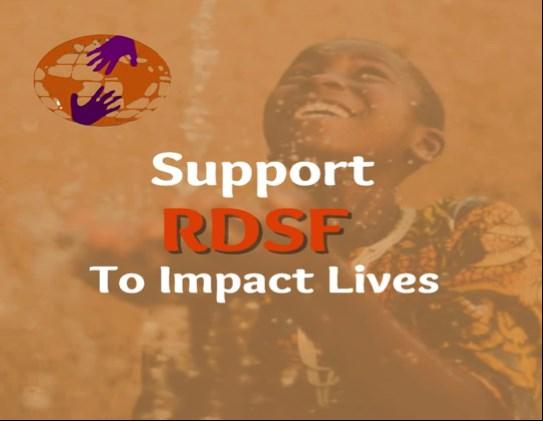
Dear RDSF,

When I needed financial support for my schooling, you came through for me. When I felt it was over pursuing higher academic qualifications because of financial constraints, you came through for me. When I had thoughts of dropping out half way, you came through for me. The ripple effects of your little drops resulted into BIG changes in my academic and social life.
Without your financial support, my National Diploma results would have been terrible, as my attention would have been divided between struggling on how to cope with the financial demands and the academic pressures. I am using this medium to also demonstrate my gratitude for your continuous support for my HND Programme. In this session, although, tougher than the previous, I am more intentional of making better grades and being outstanding. Thank you so much. I sincerely appreciate and look forward to more of your support. Augustus Gideon, Federal Polytechnic Nekede, Owerri.
Without your financial support, my National Diploma results

would have been terrible, as my attention would have been divided between struggling on how to cope with the financial demands and the academic pressures.

THINKING ALOUD JUL SEP 2022
Testimony of a beneficiary still in school
R D S F
A REHOBOTH DREAM SOLID FOUNDATION SUCCESS STORY







My name is Adesina Emmanuel, I am from a local government called Ipokia in Ogun State. I graduated from University of Ibadan where I studied Political Science. I currently work as the Administrator and a Tutor in one of the best academic centres in Alimosho Local Government, Ever Bright Tutors/College (success at its peak). I also sell and fix all forms of Laptops, iPhones and Androids Phones.
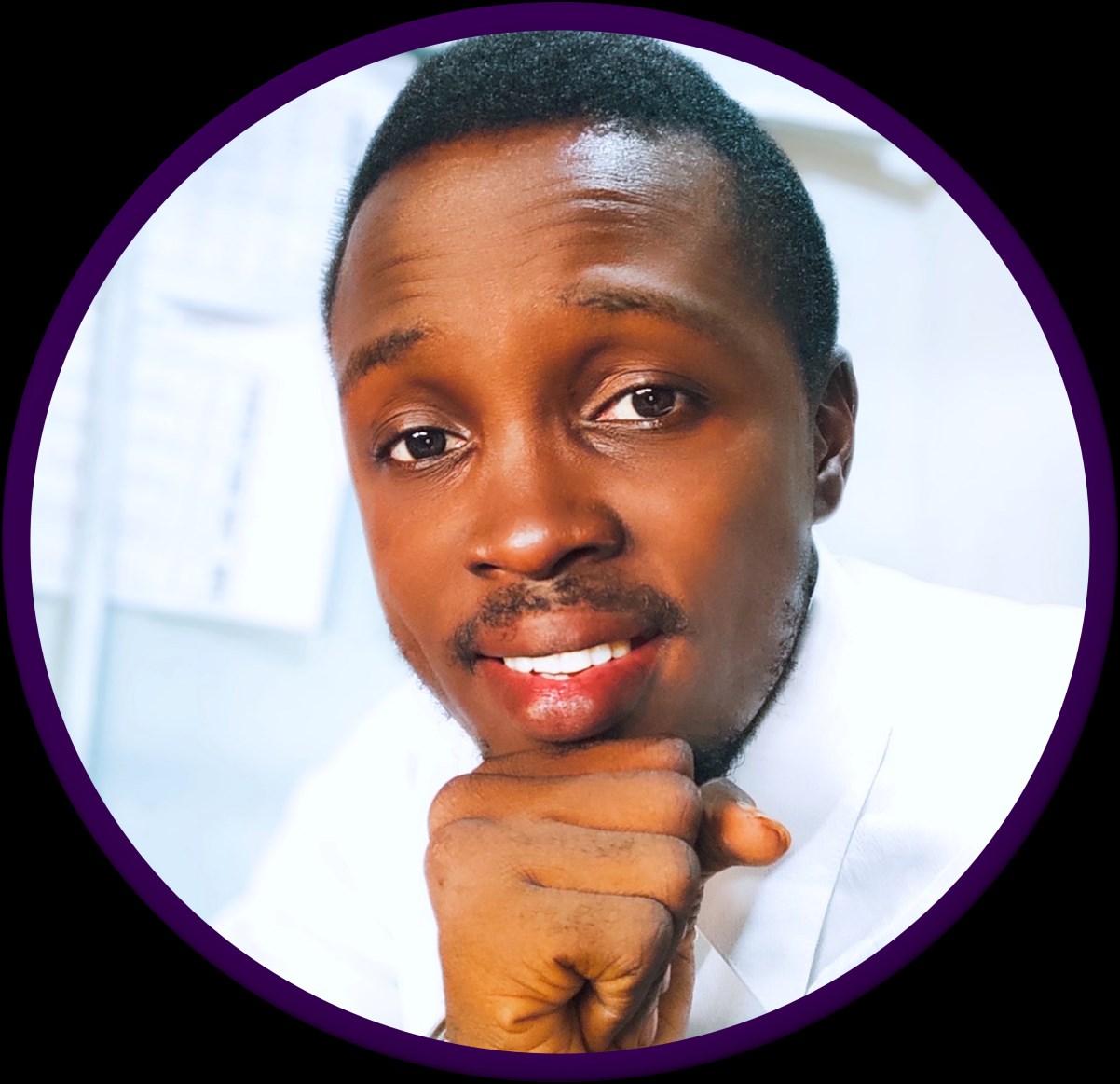

We don’t have the chance to choose where we want to be born or our preferred parents. Therefore, anywhere you find yourself, you must accept.


Being born into a family of ten is not a fancy situation especially when the silver or golden spoon is not in your mouth. It is like you are born to search, work and fight to live and survive. I am the second child in a family of six boys and four girls, all from the same super woman (Iya Koko).
My Dad has some form of education, while my mum had no formal education. Despite her educational constraints, my mother managed to support her family and she still does with God’s help. One of the things I wish to accomplish before leaving this world is to write my autobiography because my life story will give people hope. Therefore, I must succeed.

My education started quite well as a brilliant boy; I was leading the class as far as I can remember. I was in Primary Four in Saint Matthew Primary School, Isolo Lagos State, when the School got relocated to Alagbado from Isolo. I couldn’t continue in another private school because my Dad had lost his shop to a fire and demolition at
Tejuosho Market Yaba. This was the beginning of a long time struggle for me. My father made an attempt to register me in a public school but government policy wasn’t favourable.
It was impossible to get admitted into any class other than Primary One, so I had to start from Primary one. There was also an issue with my birth certificate and this led to another year without education. I was already losing interest in education.

I finished from the Primary school as the overall best student and I was so happy to start my Secondary school journey. I was lucky to have finished my Secondary School education. The journey was tough, but I persevered although the conditions were very bad. The only positive thing I can say I took from the hardship I went through is that it helped develop leadership and communication skills early.
My first Joint Admission and Matriculation Board (JAMB) examinations into the university was in 2012. Though I did well, for some reasons, I could not I start that year. The following year I wrote another JAMB examination and selected the prestigious University of Ibadan. The reason wasn’t far fetched, I could only afford to sponsor myself in a Federal university.
29 A QUARTERLY MAGAZINE
My Dad has some form of education, while my mum had no formal education. Despite her educational constraints, my mother managed to support her family and she still does with God s help.
R D S F
I remember my parents asking me not to bite more than I could chew. I was however determined to be the first graduate in my family. I gained admission to study Political Science in the University of Ibadan.
The news of my admission into the university was like a fall of rain after a long drought but no basin to store the water.
I hit the road and flexed my tiny muscles because I had to raise funds just like I have been doing since age 10. My first year was okay because I had money from my savings to run around and settle the registration and other admission processes.
I scaled through the second year, though with some difficulties. Life became hell in my third year. This column won’t be enough to discuss what I went through during this period.



But thank God, at this time in my life, Rehoboth Dream Solid Foundation (RDSF) came through for me.
With support I received from RDSF, I was able to graduate. They played a major role in making my dream of graduating come true. Right now, I can boast through the help of God, that with my support, two of my siblings are graduates and doing fine in their space.
One thing this life has taught me is that you lose when you give up. So, if you fall seven times, lift yourself up the seven times. With God on your side, you will be great.
I am not fulfilled yet, because I am not where I want to get to. However, I am most grateful to RDSF because they made things better than I was experiencing when I had to wait for leftovers before eating.





RDSF has given me a solid foundation to power myself to attaining my dreams. Thank you RDSF! I am sincerely grateful to God and the wonderful, selfless and supporting Trustees behind the RDSF.
God bless you all as I look forward to supporting the vision of the RDSF. There are many lives out there to touch.

THINKING ALOUD | JUL SEP 2022 30
I am not fulfilled yet, because I am not where I want to get to. However, I am most grateful to RDSF because they made things better than I was experiencing when I had to wait for leftovers before eating.
R D S F
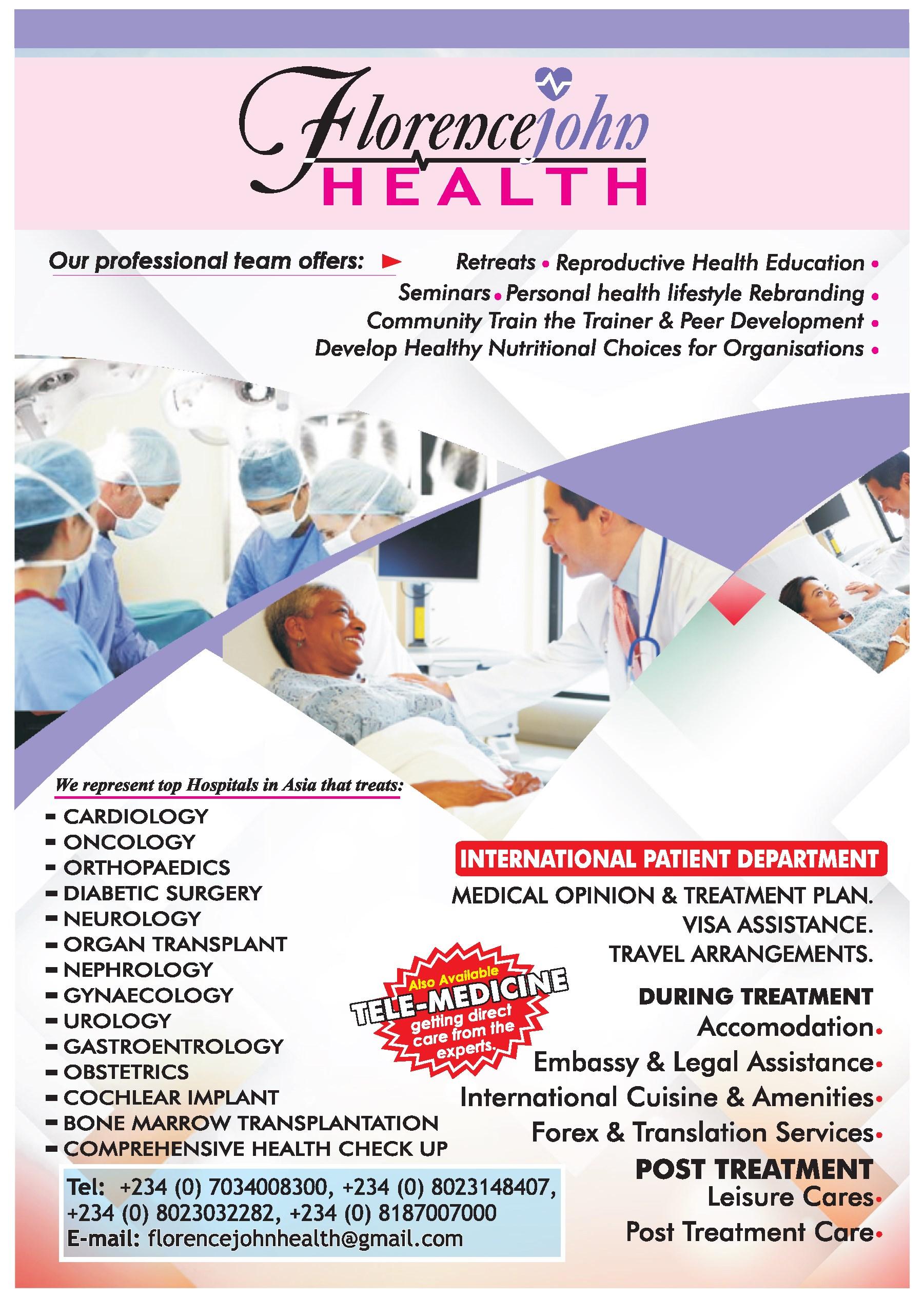
PRIMARY LIVER CANCER
INTRODUCTION

Primary Liver Cancers are cancers that originate from the cells in the liver. This is different from secondary liver cancers which are cancers that spread from other parts of the body, especially the gastrointestinal tract, to the liver. In terms of number, the secondary liver cancers are more than the primary cancers of the liver.
They are mainly Hepatocellular carcinoma (HCC) accounting for 75% 85% of cases and intrahepatic cholangiocarcinoma accounting for 10% 15% of cases of primary liver cancer. Other rare types are Angiosarcoma and hepatoblastoma (in children mostly).
Hepatocellular carcinoma is one of the most lethal human cancers that the mention/diagnosis of it is like a death sentence in many centers in resource constraint countries, but it is largely preventable by primary prevention, because most of the risk factors associated with HCC are modifiable. This cancer is strongly linked to smoking, alcohol consumption, obesity, diabetes mellitus and chronic infections by hepatitis B and C which are all avoidable risk factors.

EPIDEMIOLOGY



Primary liver cancer is the sixth most common cancer and the third commonest cause of cancer death globally. Approximately, there were 906,000 new cases and 830,000 deaths from primary liver cancer in 2020. The Global Burden of Disease Liver Cancer Collaboration found that there was 75% increase of new cases of primary liver cancer from 1990 to 2015 with highest rates in Northern and Western Africa as well as Eastern and South Eastern Asia.
China accounts for about 50% of the global burden of HCC while more than 80% occur in Africa and East Asia. The burden correlates with the prevalence of Hepatitis B Virus (HBV) and Hepatitis C Virus (HCV) infections. In both incidence and mortality rates, they are as 2 to 3 times commoner in men than in women in most regions of the world.


The incidence of primary liver cancer has been on the increase in the last thirty years and it is expected to continue till 2030 in many countries including the US though it has reduced in some Eastern and South Eastern Asian countries like China, Taiwan, Republic of Korea, Philippines and Japan where the vaccination against Hepatitis B virus was first introduced in the 1980s.
It is the most common cancer in 11 countries with the incidence rate in Mongolia far exceeding that of any country in the world. Other countries are in South Eastern Asia (e.g. Thailand, Cambodia and Viet Nam), Northern and Western Africa (e.g. Egypt, and Niger). In both men and women, it is the leading cause of cancer death in Mongolia, Cambodia, Egypt, and Guatemala and the leading cause of cancer death in men in some 18 other countries.
RISK FACTORS

Most cases of primary malignancies of the liver are caused by chronic liver diseases with liver cirrhosis topping the list. However, about 25% of primary liver cancers have no identifiable risk factor.

THINKING ALOUD | JUL SEP 2022 32
This cancer is strongly linked to smoking, alcohol consumption, obesity, diabetes mellitus and chronic infections by hepatitis B and C which are all avoidable risk factors.
R D S F
The common risk factors are:


Liver cirrhosis: Cirrhosis of any cause is a major risk factor for HCC. About 80% of newly diagnosed HCC have background of liver cirrhosis. Commonest causes of liver cirrhosis are chronic infections from hepatitis B and C viruses, alcohol abuse, and nonalcoholic fatty liver disease.
Hepatitis B virus (HBV) infection: This is the commonest cause of HCC globally. Chronic infection with HBV in the setting of cirrhosis increases the risk of HCC 1000 fold. In 2019, the global prevalence of HBV infection was 296 million but HBV vaccine is an effective preventive measure against HBV infections.

Hepatitis C virus (HCV infection: It is a global pandemic affecting about 58 million persons. About 80% of persons infected with HCV develop chronic. It is the commonest cause of HCC in Japan.

Aflatoxins: These are carcinogenic chemicals produced by certain fungi on staple foods like peanut, cereals, cassava etc. People get exposed when they ingested foods contaminated by Aflatoxins. It is commonest in Sub Saharan Africa and East/South Eastern Asia.
Alcohol: Chronic alcohol use (>80g/d or 5 7 drinks/d) for more than 10 years increases the risk of developing HCC by 5 fold. Alcohol accounts for about 30% of HCC in the USA.
Metabolic factors: Obesity and type 2 diabetes mellitus have been implicated as causes of HCC.
SYMPTOMS


At the early stage, livers do not show symptoms. By the time symptoms are beginning to show, the cancers are already advanced. Common symptoms are progressive weight loss, loss of appetite, abdominal pain, yellowness of eyes, vomiting etc.
PREVENTION
Cancer prevention is by primary, secondary and tertiary preventions. Most causes of primary liver cancer are avoidable by primary prevention. One of the most successful prevention of liver cancer is vaccination against hepatitis B. By 2020, hepatitis B vaccine has been introduced nationwide in 190 countries with global coverage of 42% ranging from 6% in African region to 84% in the western pacific region. Vaccine against HCV is not yet available but treatment of HCV infection significantly reduces the risk of developing liver cancer. Efforts aimed at
limiting viral transmission by promoting safe medical practice, reducing alcohol use disorder, minimizing exposure to Aflatoxins by post harvest treatment to minimize growth of mold, and reducing obesity and diabetes mellitus are all primary preventions of liver cancer.
Secondary prevention includes treatment of agents involved in causing cancer or preventing the cancer process while tertiary prevention involves treatment to prevent cancer recurrence.
TREATMENT
Treatment depends on the stage of the cancer. Prognosis of liver cancer is generally poor. Treatment includes surgery, liver transplant, embolization therapy, targeted therapy, immunotherapy and radiation therapy.
CONCLUSION



Liver cancers are common and lethal. Prognosis is generally poor as most treatment modalities, including the best options, offer little hope. Prevention, therefore, is key and achievable.
Dr S.A. Onjefu is presently a Senior Registrar in General Surgery at the University of Ilorin Teaching Hospital, Ilorin Nigeria. He is currently working on chemotherapy induced nausea and vomiting (the most dreaded side effects of chemotherapy) in patients with breast cancer.
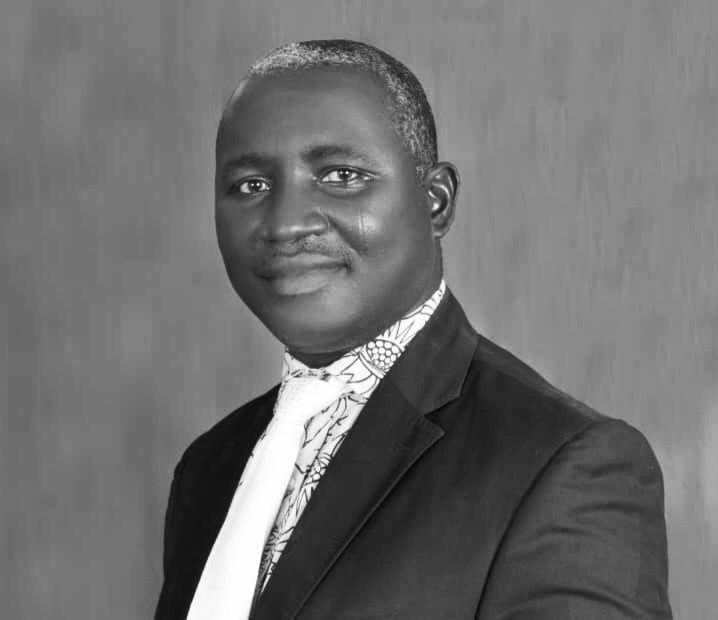
33 A QUARTERLY MAGAZINE
At the early stage, livers do not show symptoms. By the time symptoms are beginning to show, the cancers are already advanced.
Common symptoms are progressive weight loss, loss of appetite, abdominal pain, yellowness of eyes, vomiting etc.
R D S F
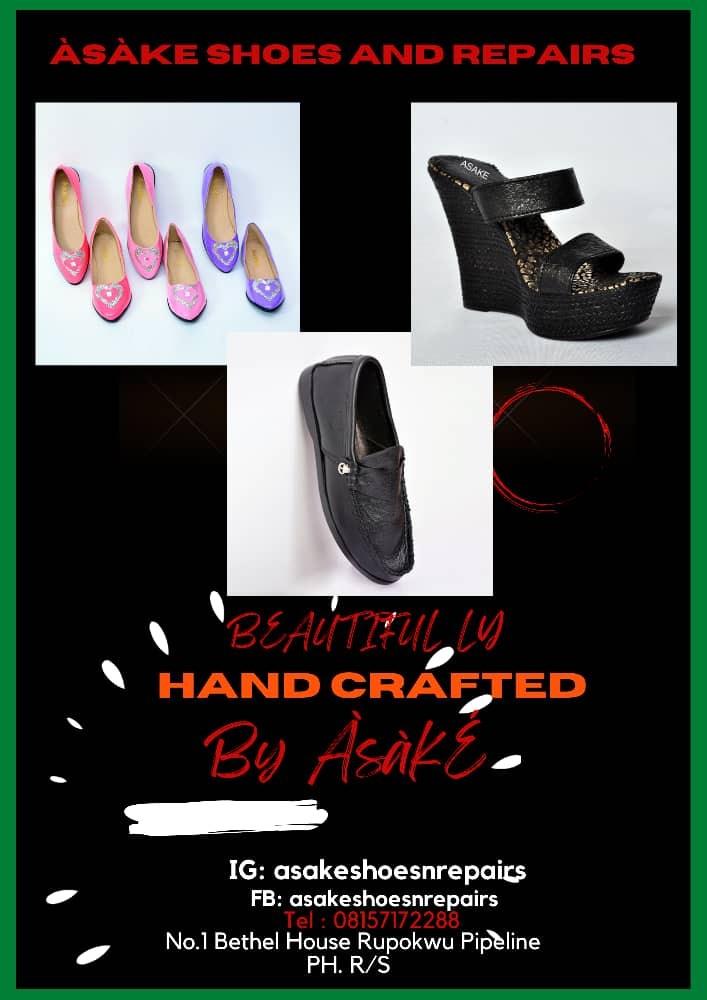
FITNESS PERSONALITY CORNER
attended. I played basketball, threw the javelin, shot put and ‘discuss’. I also played rugby and ran track for a while before committing to play American football in college and later in the university. I can say for a fact that being an athlete molded me and my interest in fitness gave me the strength and conditioning to excel in my endeavors.
Q3.Whatisyourphilosophyonhealthylivingandfitness? whatisyourideaofaperfectmeal?
Response:
My ideology of healthy living is very simple, treat your body like a temple and your body will take care of you. The only way to do this successfully is to know and fully understand yourself. Selflove is also important because when you love and respect yourself, you will do things to improve and evolve as a human being. In all honesty, there is no such thing as a perfect meal, only healthy choices when it comes to eating. I recommend a balance between carbs, proteins and vegetables with enough alkaline water.
Q1.Thankyoufortakingtimeoutofyourbusyschedule forthisinterview.Kindlyintroduceyourselftoour readers?
Response:
Thank you for having me. It is my pleasure to be your guest for this edition. My name is Olukoya Olusegun Ajayi, I am the founder and CEO of Silverback Lifestyle and Wellness Services, where we operate in health and wellness, sports therapy and dietary plan instruction services.
Q2.Pleasetelluswhenandhowyourfitnessjourney started?
Response:
My fitness journey started when I was a child. In school I always loved sports and became an athlete when I got into Kings College Lagos, the secondary school I
Response:
Whatgives me the motivationto stay fit is self discipline. I have learnt that in life to get what you don’t have, you must do what you haven’t done before. This requires one to be focused on the desired goals, then create a plan to achieve these goals and stick to the plan. I also ensure to evaluate my progress and I don’t give up on myself even when times are tough, and things gethard.
Response:
Going to the gym is important for everyone, whether the goal is to lose weight, build muscle or just maintain a certain fitness level which all depend on the individual. I want to clarify that slim people do need the gym to maintain their physique, the argument that slim people do not need the gym is totally misconstrued. Big,small, slim, orchubby, weallneedto go to the gym to stay fit.
Q6.Alotofpeopleprocrastinateandstrugglealotabout workingout.Whattipsforworkingoutcanyouadvice?
Response:

People who have these struggles are yet to appreciate the value of a fitness regime to their overall health. If you find yourself struggling to maintain a fitness regime, you need to do a self evaluation with focus on self love and self respect. You need to know thatworking outis one of

35 A QUARTERLY MAGAZINE
Q4.Mostpeoplegetdiscouragedwhileonthejourneyto beingfit,whoorwhatgivesyouthemostinspirationto continuetokeepfit?
Q5.Thereisamisconceptionthatpeopleonlygotothe gymbecausetheywanttoloseweightandthatpeoplewho aresliminstaturedonotneedtogotothegym.Please makesomeclarificationsonthisissue,soourreaderscan learn.
R D S F
the best forms of taking care of your body which will also impact positively on your mental health. Once you understand the value and benefits, start with setting small fitness goals which are easy to achieve. Do something each day to get you moving, stay active and challenge yourself to keep going. When you start taking small actions and taking one day at a time, progressively, you will be motivated to take bigger steps and eventually settleinto aregular regime.
learn something new all the time via fitness journals and watching training videos. I also take professional courses onfitness training whichgive me anaddedadvantage.
Q7. How would you structure a fitness routine for an elderly person with a pre existing condition like diabetes andhypertension?
Response:
Creating a fitness structure/workout routine for an elderly person with diabetes or hypertension is quite straightforward. The first step will be to get a clearance from the doctor approving workout. Once this is available, focus will be on a fitness routine that encourages mobility and supports the overall functionality of the individual. Attention must also be paid to creating a suitable diet plan to ensure nutrition caters forimprovingthe general health condition. .
Q8. What's your view on nutrition supplements? Do you recommendnutritionsupplements?
Response:
The goal is to achieve optimal health. I have no reservations on the use of supplements as long as they are prescribedby a certifiedphysician. The aim of taking supplements is to supplement diet to ensure the body gets sufficient level of nutrients. However, while it is good to take supplements, we should be aware of the need to stay hydrated , and eat healthy. These are components that improve our overall wellbeing aswe grow older.
Q9.Withdifferentformsoffitnessandnewworkout methodsalwaysbeingdeveloped,stayinguptodateonthe latesttrendsinfitnessisessential.Howdoyoukeepyour fitnessknowledgeuptodate?

Response:
Indeed staying up to date is important for my work and I try to educate myself by researching on various forms of exercises, workout plans, nutritional advice etc. The information I get from the internet or knowledge shared amongst my peers and seasoned professionals are what keep me grounded. I never shy away from wanting to
Response:



Adopting a fitness lifestyle is very affordable in Nigeria. We tend to over think things when it comes to taking our health seriously. In my honest opinion, going to the gym is very important for many reasons and is especially important for mental health. It is also good to be in environments thatare very helpful.
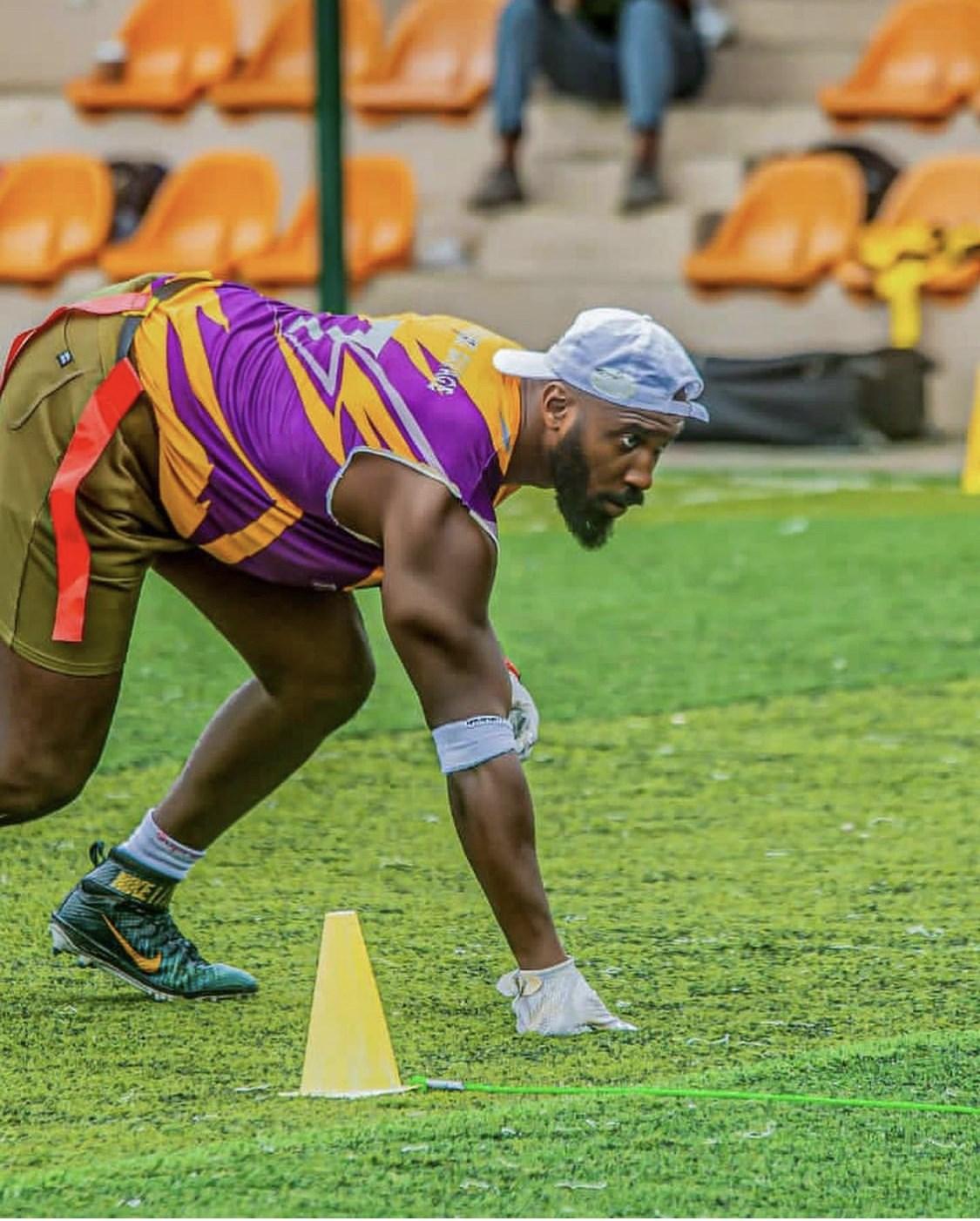
The gym is an awesome place to meet great people who are on a mission and are like minded, driven and have the zeal to achieve set fitness goals. There are gyms that are affordable, all you need is to find them, enrol and stay consistent and disciplined. The routines will always be available for all who have keen interest in taking them on andputting intheirbest.
Thank you for your time and valuable fitness lessons sharedwithourreaders.
Response: You are welcome. Thank you for promoting fitness in yourmagazine.



THINKING ALOUD JUL SEP 2022 36
When you start taking small actions and taking one day at a time, progressively, you will be motivated to take bigger steps and eventually settle into a regular regime.
Q10.Lastly,isfitnessandgymroutineaffordablein Nigeria?
R D S F
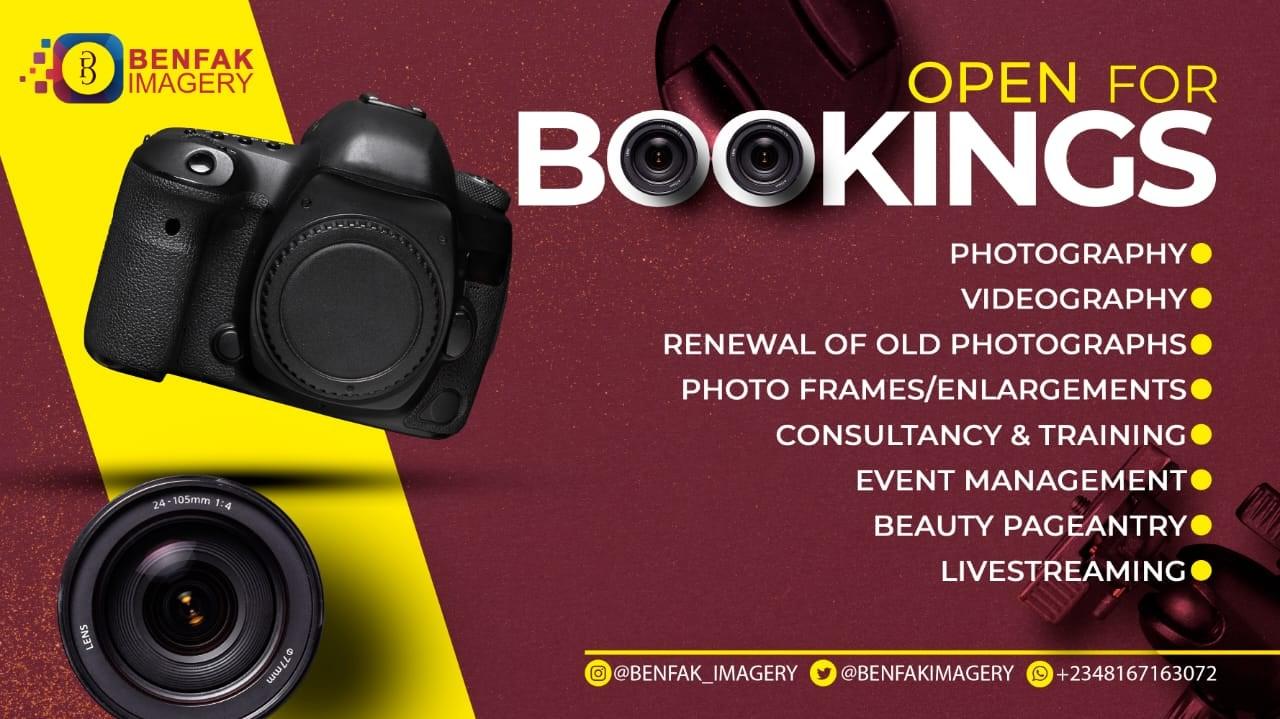
Intellectual: Mental exercise and engagement through learning, problem solving, and creativity support intellectual wellness and promote a better attitude.
Emotional: A person with emotional wellness can better deal with stressful situations.
A



question we hear quite often is ‘How are you?’ and we habitually respond by saying ‘I am okay’ or ‘Fine, thank you’. Most of the time, this exchange is something we do in polite society; merely etiquette. Just like “Good morning” or in our part of the world. “How was your night?” And even when we do genuinely mean to enquire about someone’s health, the question is usually tilted towards how they are physically, when in fact wellness encompasses both physical and mental health.
Health has been defined by the World Health Organisation (WHO) as “a state of complete physical, mental, and social well being and not merely the absence of disease or infirmity (illness).” While it defines wellness as “the optimal state of health of individuals and groups,” and wellness is expressed as “a positive approach to living.”.
The primary difference between health and wellness is that health is the goal and wellness is the active process of achieving it. You truly cannot have health without first achieving wellness. Wellness has a direct influence on overall health, which is essential for living a robust, happy, and fulfilled life.





Wellness is more than just physical health; it is holistic and multidimensional. It comprises six dimensions that include physical, intellectual, emotional, environmental, social, and spiritual wellness.
Physical: Physical wellness increases physical fitness. By being physically fit, a person would have an enhanced ability to prevent illness and diseases.
Social: Social circles and support networks are invaluable to the overall well being of a person.

Spiritual: Spiritual wellness does not imply religion or faith of a person, but the search for meaning and purpose of human existence.
Environmental: Awareness of the role we play in improving our natural environment rather than denigrating it and maintaining and living in a healthy physical environment free of hazards, promotes wellness.
‘Design’
‘Design’ is such a familiar word, and yet there seems to be a certain degree of misconception surrounding it. Is it simply a process to make nice looking things? Far from it. It doesn’t focus purely on aesthetics, nor is it about adding ornaments to an item or space. First and foremost, design is about making the user’s interaction with the environment more natural and complete. It is the process of envisioning and planning the creation of objects, interactive systems, buildings, vehicles, etc. At its core, design is user centred, i.e. users are at the heart of the design thinking approach.
SPECIAL FEATURES R D S F
THINKING ALOUD | JUL SEP 2022 38
The primary difference between health and wellness is that health is the goal and wellness is the active process of achieving it. You truly cannot have health without first achieving wellness.
It is about creating solutions for people, physical items, or more abstract systems to address a need or a problem. Design is a very broad concept and its meaning can greatly vary from one field to another. It permeates every aspect of our lives and branches out into many different subgenres, from product design, sounds, virtual reality, experiential design, to designing cars, video games, software interfaces, the home and office interiors etc.
It is well established that our daily behaviours and lifestyles are directly influenced by our homes, communities and surrounding environments (and vice versa) and as a result, determine about 80% 90% of our health outcomes.
Along with the many advantages brought to the world in this digital/technological era (high levels of comfort, convenience, entertainment, etc.), design has also created a modern living environment that not only poses health risks to us (sedentary lifestyles, poor diet, stress, social isolation, etc.), but also environmental degradation.
In addition to the existing stress of our already busy lives, research has shown that the way homes and office spaces have been built over the last century, has boosted lifestyles that make us unwell, stressed, alienated, congested and dispirited; leading to increased cases of depression, anxiety and insomnia, amongst others. Our homes and offices are the places we spend most of our time and they are supposed to be our safe havens and shelter from a very noisy world; places where we can regain focus, recollect our thoughts and be our best and most productive selves in, thus the urgent need for a paradigm shift in the way we think about and design the spaces where we live and work.
physical environments are healthier and higher performing are not only less likely to call in sick, they are also less likely to come to the office when they are sick they’re working more, and staying home when they should.
Wellness focused design involves lighting, materials, air and sound quality, calming colour palettes, biophilic design (connecting architecture and nature), and outdoor indoor space integration to name just a few key design elements.
The pursuit and promotion of wellness requires a shift in focus from treatment to prevention. Wellness based design is an opportunity to address incidental factors, instil a culture of wellness, and keep low risk individuals at low risk by providing healthy environments and promoting healthy behaviours.
Employees satisfied with the physical and performance factors of their workplace report higher energy levels when at work and take fewer sick days than peers in underperforming environments. Employees whose





Furthermore, The World Green Building Council found a 66% fall in staff performance as a result of distracting noise. In general, office sound levels should be moderate or less to keep worker stress in check and thereby optimize productivity, as task performance is degraded both in environments that are too loud and those that are too quiet.



Another example of intentional design choices to promote wellness is designing office layouts to have far off water stations and printing bays, which would force employees to leave their seats thereby encouraging some movement during the course of the day. The outbreak of Covid 19 and restrictions on all activities really shone a light on the need for wellness focused design thinking. People were stuck at home and there is extensive research to show that there is a high link between depression and living space. It is crucial for office and home spaces to be designed to integrate wellness.
The world has changed and steps need to be taken to put that into consideration. With global warming, getting in as much fresh air as possible is important. It is also crucial for future homes to be designed with multiple uses in mind, such as carving out dedicated workspaces or exercise areas, or creating rooms that are reconfigurable depending on the time of day and
39 A QUARTERLY MAGAZINE
Both in personal and commercial spaces, we are beginning to create more open spaces with access to natural light and freshness and with a more intentional connection to the outdoors.
R D S F
intended use. Homes have also become safe havens amid the Covid 19 pandemic and this sentiment is likely to become more literal with interiors designed to provide comfort, security and calming wellness spaces. With the ‘Stay home, stay safe’ mantra of the lock down months, home has acquired unprecedented importance by being perceived, particularly at the height of the pandemic, as being the only safe sanctuary against the virus.




The need to create environments that lift up the mood and foster good health and feelings of vitality has now become more obvious. No better option than greenery to do this job! Greenery not only decreases carbon dioxide levels in the home, it also soothing to the eyes, adds a distinct freshness to a space and stimulates our senses. From vertical gardens to hanging pots, planters on balconies or table tops, every space poses an opportunity to introduce greenery and connect to nature.
As we better understand ourselves and our essential needs for optimal wellness, we will begin to further appreciate the interconnectivity of design, health, wellbeing and lifestyle choices and realise that wellness is not complete without design thinking and vice versa.



With the increase in the time spent at home, it has been observed that people are becoming more particular about their home design. They are paying attention to the minutest details and design flaws in their homes which were ignored or tolerated earlier.
If being locked down within the four walls of the home has taught us anything, it is that we should have such a home design which can satiate all our needs. Greater focus and consideration is being given not just to function and aesthetics, but to how these spaces make us feel and their suitability to support our desired lifestyles.
Both in personal and commercial spaces, we are beginning to create more open spaces with access to natural light and freshness and with a more intentional connection to the outdoors. Inclusion of greenery, particularly in the space of a home is an important requirement that has been realized because of covid.
With no access to parks and gardens during the lockdown period, people realized the importance and impact of greenery in their lives. As such, biophilic design is being considered less of a luxury or niche area, and more of an essential element of every design project.
The prolonged state of crisis and the need to maintain social distance and reduce social interactions is taking a toll on people’s mental health. It has therefore become important to introduce elements which create relaxing atmosphere in the homes.



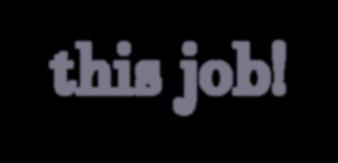








From deliberate selection of materials, infusion of colours, lighting, sound and space planning, you can design a space that would be both functional and effective in enhancing your wellbeing. Design can be functional and aesthetically pleasing, but it can and in fact should also be an avenue to achieving a more balanced life. Wellness is multi faceted and our spaces need to be designed with careful consideration for all the different facets.
Omon Anenih Mordi ‘The DEW Centre’ and started the journey to her professional career by receiving an LLB in Law from the University of Nottingham, England and further with an LLM, Petroleum Law and Policy (CEPMLP) from the University of Dundee, Scotland. She subsequently went on to take a Diploma in Interior Design from JJA Academy, UK which transformed her passion for interior design into a successful business over the past decade and a half.
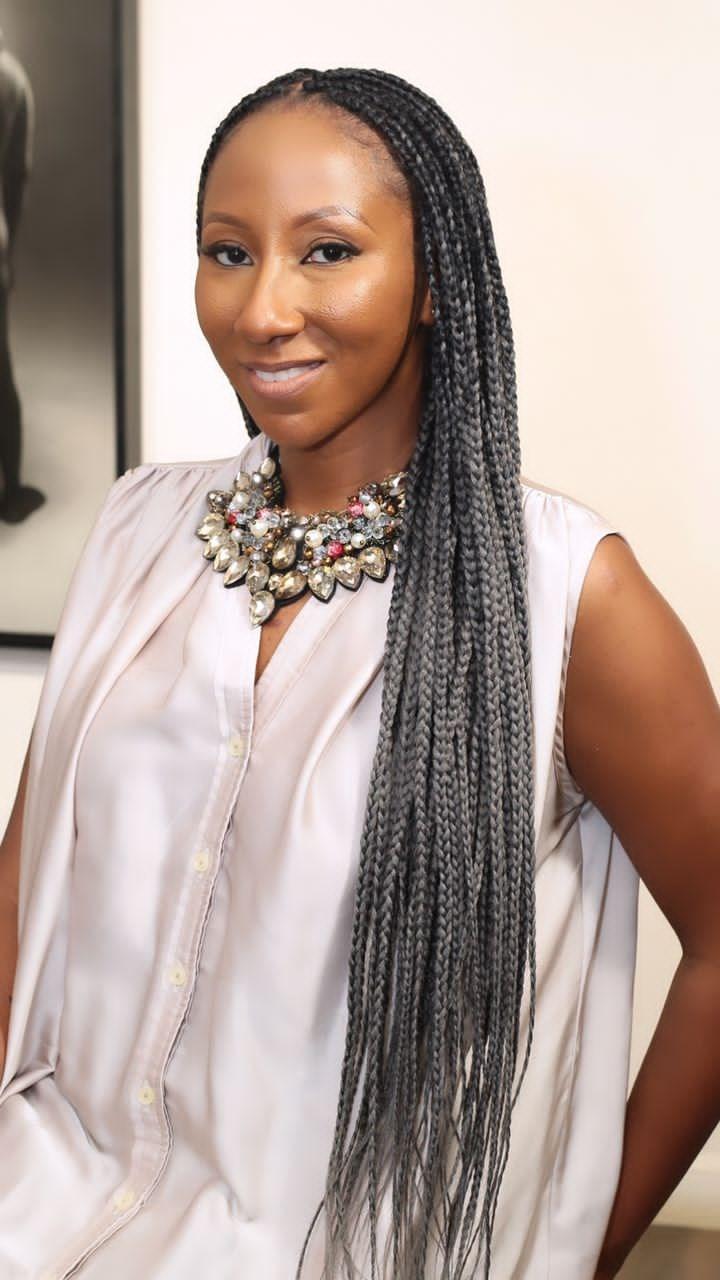
THINKING ALOUD JUL SEP 2022 40
With the increase in the time spent at home, it has been observed that people are becoming more particular about their home design. They are paying attention to the minutest details and design flaws in their homes which were ignored or tolerated earlier.
The need to create environments that lift up the mood and foster good health and feelings of vitality has now become more obvious. No better option than greenery to do this job!
R D S F
POETRY CORNER

IWords so sweet, they tumble as I swish.
Chuk up, Chuuk up, chuuuuuukuuuuup
Splat!
Words of courage gush out!
Words that build Like crystals, they reflect His unfathomable love
A radiance of hope
Just as His Mighty Right Hand is my leverage Against the ceaseless whispers of "You never know what."
Chuk up, Chuuk up, chuuuuuukuuuuup
Splat!
I spew words that ward off The hard knocks of nagging fear
Words that build That speak the truth in swallowable capsules― in humane doses
So that I don't overdose on the "I told you so's."
I have no doubt
The road ahead is fair Laid along my path are beds of words Showered with praise
Oh, no! I am not cheeky
I spoke to Him this morning
My way is safe in His hands!
His Mighty Right Hand, my leverage
His Countenance, my polish

My life, forever furnished An eternal refuge in Him, no tarnish.
Ibinabo Enebi is a pathfinder dedicated to the proposition that our life stories and expertise are not just ours, but should be content enough to share. A journalist by training, and a poet by design, she creates content that helps people make better choices in their lives. Through her platforms (IbinaboEnebi, a blogging website, and Ibi Speaks showing on her YouTube Channel @IbinaboEnebi), she features experts, thought leaders, and everyday people with nuanced perspectives on various life issues.
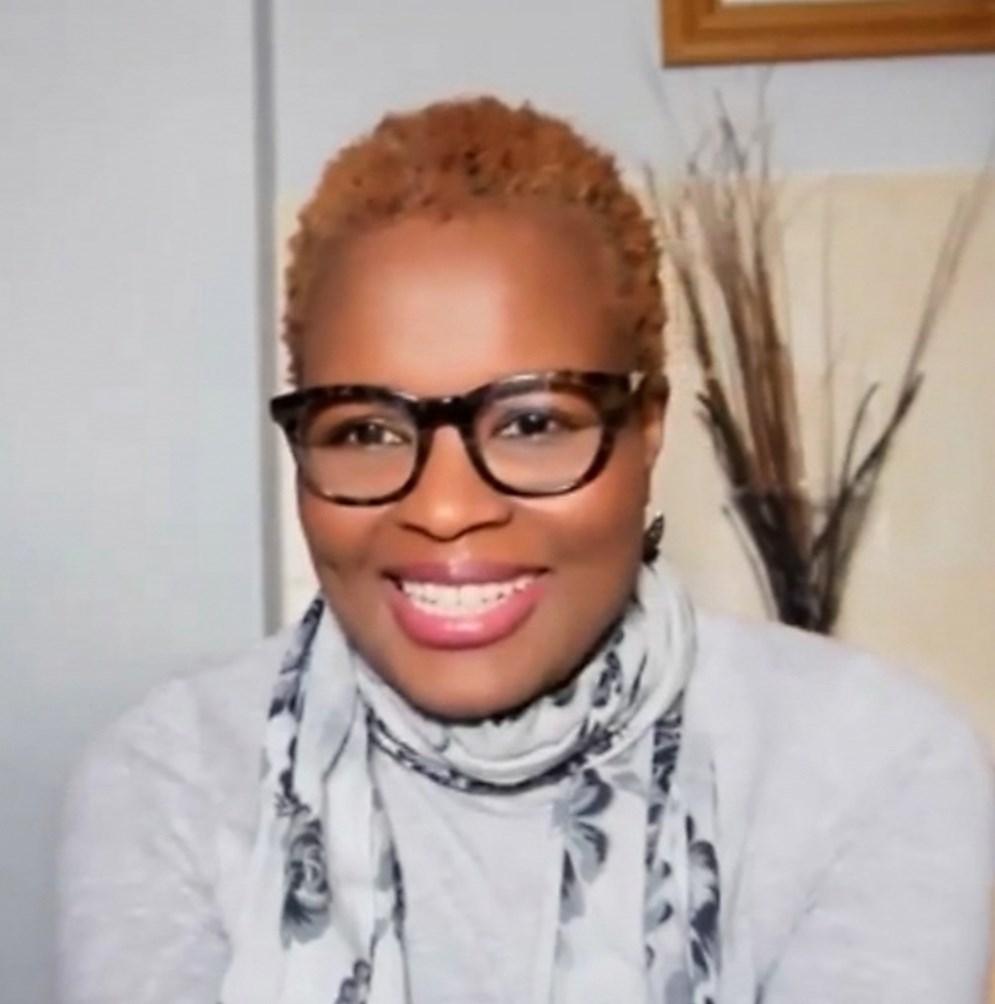
41 A QUARTERLY MAGAZINE
R D S F

the rehoboth dream solid foundation board of trustees

Rear Admiral Oladeinde (‘Deinde) Olusoga Joseph was born at Ara Moko, Ekiti State into the humble family of late Mr. Joseph Owolabi and late Mrs. Ajibabi Owolabi on the 9th of May 1948.
He enlisted into the Nigerian Navy in July 1967 and later graduated from the Nigerian Defence Academy Kaduna and was commissioned as a Sub Lieutenant in July 1971 in India. He received professional training as a naval officer in India, United Kingdom and the United States of America. Rear Admiral Joseph is a graduate of the Nigeria Command and Staff College Jaji and the prestigious National Institute for Policy and Strategic Studies Kuru.

As a professional naval officer, he went through all the ranks in the Navy until he was promoted to the full Rear Admiral rank in 1998. While in the Navy, he had 4 sea commands, which included that of NNS Aradu (the Navy’s flag ship), 2 Training bases and 2 Operational bases. He had 2 tours at Jaji Staff College as Chief Instructor and Director of the Naval Faculty. He was also the Military Governor of Ogun State between 1990 and 1992. His last job was Chief of Navy Personnel at Naval Headquarters until he retired in June 1999.
Married to Mrs. Katherine Lolade Joseph since April 1975, Rear Admiral ‘Deinde Joseph is blessed with 3 children; Toyin (now Mrs. Borisade), and the boys Seyi and Jide, all University graduates. His hobbies are photography, reading and he is a handicap 9 golfer. A practicing Christian of Methodist Church of the Trinity, Tinubu since 1967, he has a passion to help the less privileged in the society. Rear Admiral Joseph is a recipient of the National Honour of the Commander of the Order Of the Niger (CON), and brings his experience and goodwill to the Foundation as the Chairman, Board of Trustees of the Rehoboth Dream Solid Foundation.
Ms. Ketumi Alasa studied Computer Science in the then Sheffield City Polytechnic now known as Hallam University, Sheffield, England. Worked in various capacities as an IT professional in leading multinational Oil and Gas, Insurance and Iron and Steel companies in Nigeria for 28 years cumulatively. After a successful and rewarding career in the corporate arena, she took an early retirement and launched out to fulfil her entrepreneurial dream in real estate and retail management. As a real estate entrepreneur, she has made remarkable progress in development and management of properties. On the retail front, she runs a chain of interior decoration shops.

She is a practicing licensed Canadian Immigration Consultant and a certified Canadian Education Consultant and Foreign Student Recruiter for Canadian schools.
She is the CEO of Canada Outreach Immigration and Academic Consultancy, Managing Director of J Three Sixteen Associates and Managing Director of Kay Kay Enterprise Interiors. She also serves on the Boards of a couple of christian and philanthropic organizations.
Blessed with five children, she enjoys playing the game of Golf. She served as a Lady Captain of IBB Golf and Country Club.
She is a Christian with a deep passion and commitment to supporting Missions work and the under privileged. Ms Ketumi Alasa is also a Trustee of the Rehoboth Dream Solid Foundation.
43 A QUARTERLY MAGAZINE
Deacon Samson Madu Igbokwe is a 1983 B.Pharm Graduate of Pharmacy from the former University of Ife (Unife), now known as Obafemi Awolowo University (OAU). In addition, he gained a Masters in Business Administration Degree (MBA) from the University of Lagos (Unilag) in 2000. He also acquired a Certificate of Proficiency in Information Systems Management (CPISM).
Shortly after his Youth Service Corp at Military Hospital Lagos, he set up his own pharmacy business at S.W. Ikoyi, Lagos in 1985 which he has been running as Chairman/Managing Director till date. This is a company that supplies and distributes pharmaceuticals to its community and hospitals in Lagos State.
A devout and practicing Christian, he gave his life to Christ on March 31, 1991 in The Redeemed Evangelical Mission (TREM), Akoka. Since then, he has served in various capacities in TREM as House Fellowship Centre Leader, Zonal Leader, Assistant Area Co coordinator and Financial Secretary/Treasurer of Caleb Group of the Christian Men Fellowship.
He is currently serving as the Chairman Hospital Visitation Ministry in TREM. He is a member of Pharmaceutical Society of Nigeria (PSN) and a Treasurer at Ikoyi Pharmacy Community Zone. He has passion for contributing to his community, and often assists in reaching out to orphans, the fatherless and widows in the community.
Periodically, he visits in a group and prays for the sick in hospitals in Lagos, ministering to their spiritual, physical and material needs. He is happily married to his amiable wife Mrs. Roseline Igbokwe and they have 5 children. Deacon Samson Igbokwe is a Trustee of the Rehoboth Dream Solid Foundation.


Deaconess Roseline Igbokwe was born on November 2, 1965 in Ikoyi, Lagos, and is married to Pharmacist Samson M. Igbokwe.
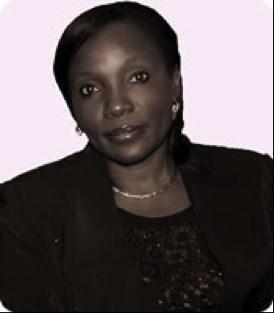
She is an alumna of Sikkim Manipal University (SMU), Gangtok, India and the University of Lagos (UNILAG); Bsc. in Applied Information Technology, Business Administration and Masters in Business Administration(MBA) from the same institution.
She holds a Certificate of Proficiency in Information Systems Management (CPISM), Advanced Diploma in Systems Engineering (ADSE), Certificate in Strategies for Managing and Collecting Data (LBS) and Certificate in Core Sales Skills (LCT). She worked with Texaco Nigeria Plc as well as Chevron Oil Nigeria Plc as Food Mart Supervisor, Senior Retail Business Consultant, South, and then MRS Oil Nigeria Plc as District Sales Manager, Southwest Nigeria, Credit Control Manager for Nigeria, Aviation Commercial, Retail Sales Manager for Southeast/Southwest Nigeria and Head, Sales & Marketing. Nigeria.
A hard worker with enthusiasm for excellence, in 2006 she won the ‘African Pakistan Global Downstream 2006 Cultural Award, of Customer Facing and Market Focused’ in Chevron, having executed superior and consistent execution and sales implementation of all programs, processes and systems. She had focused the department’s organization around achieving the best business financial targets through an agreed set of Profit & Loss control measures in all MRS Oil Nigeria Plc service stations in Nigeria.
She is an ordained minister with The Redeemed Evangelical Mission (TREM): and at various times has held the following positions: Assistant Secretary, Young Women Fellowship; Assistant Secretary, Christian Women Fellowship and Chairman Disciplinary Committee of the Evangel Voices Choir and Team Lead with the Christian Women Fellowship. Deaconess Roseline Igbokwe is also a Trustee of the Rehoboth Dream Solid Foundation. She is blessed with (5) five children.
THINKING ALOUD JUL SEP 2022 44
Pastor (Dr.) Joshua Gbadebo Opadiya is the Senior Pastor of Every Nation Church Sydney, Australia, a worldwide family of churches and ministries. He is currently serving as the Hub Leader of the Oceania (Australia, New Zealand, Papa New Guinea and Fiji) overseeing the ‘Every Nation churches and ministries in the Oceania region.

Pastor (Dr.) Opadiya previously lectured in the Lagos State University, Nigeria for 6 years, before moving with his family to Innsbruck in Austria where he lived for almost 6 years. Thereafter, the family moved to Sydney Australia in 1999 where together with his wife, Dr. Mrs. Opadiya started the ‘Every Nation Church.
He received his bachelor’s and master’s degrees from the reputable University of Ibadan in Nigeria and holds a doctorate degree in Ecotoxicology from the Technical University, Innsbruck, Austria. Pastor (Dr.) Opadiya has a burden to raise godly leaders and see the nations return to Jesus Christ. He has travelled and ministered in several nations worldwide.
Pastor (Dr.) Opadiya's passion is to connect with young adults and adults alike who are leaders, peacemakers and bridge builders in their colleges, universities and in their communities. His life has been dedicated to this cause, reaching out, equipping, counseling and mentoring. He is also the dean of Every Nation Leadership Institute, a part time program that is purposefully designed to provide discipleship training and biblical teaching for people from all walks of life. Pastor (Dr.) Opadiya and his wife have been married for 31 years. They are blessed with children. He is a Trustee of the Rehoboth Dream Solid Foundation.
Dr. (Mrs.) Yinka Opadiya is a senior pastor with Every Nation Churches and Ministries. Alongside her husband Pastor (Dr) Joshua Opadiya, she oversees the multi congregational Church organization in Sydney, Australia a church with members from diverse cultures, age groups and professions.
She is a teacher and motivational speaker with a passion for teaching about God's love and His purpose for humanity. She is also passionate about women and youth ministry; and is committed to mentoring women and young girls.
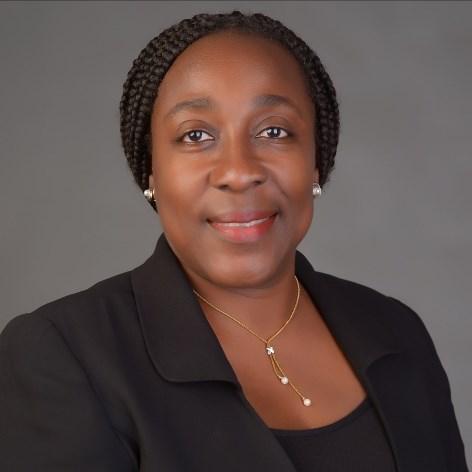
Her heart cry is to see ‘the Church’ respond to the Great Commission of ‘making disciples’ and transforming nations. A graduate of the prestigious Universities of Ife and Ibadan in Nigeria, she also holds a Doctorate degree in French (Women Literature) from the University of Innsbruck in Austria. She had worked as a French Lecturer in the Lagos State University and in various schools in Sydney Australia. Dr. (Mrs.) Yinka Opadiya been married for 31 years. They are blessed with children. She is a Trustee of the Rehoboth Dream Solid Foundation.
Mrs. Ronke Osikoya holds a law degree (LLB) from the University of Lagos and an MBA (1988) from the same University. She is a Certified Trainer for the Commonwealth Association on Corporate Governance and has facilitated on the Directors course on Corporate Governance. She is a Management Consultant that co runs a management consulting firm, Pedion Partnership Limited.
Her values are strongly shaped by her Christian faith and she believes very passionately in supporting the under privileged, particularly children, which accounts for her involvement with the Foundation.

Mrs. Osikoya is a Trustee of the Rehoboth Dream Solid Foundation and lives with her husband and 2 sons in Lagos, Nigeria.

| 45 A QUARTERLY MAGAZINE
Mrs. Abimbola Komolafe is a devout Christian who was ordained as a Deaconess of the Redeemed Christian Church of God (RCCG) in the year 2000 and as an Assistant Pastor in August 2013. She served as a Coordinator in the Teens ministry of the Resurrection Parish of the RCCG in Lagos where her passion for supporting the education of the less privileged was birthed .
She is a Chartered Accountant and Chartered Banker and is a Fellow of the Institute of Chartered Accountants of Nigeria (ICAN) and a Fellow of the Chartered Institute of Bankers of Nigeria. Mrs. Bimbo Komolafe has taken various management, Leadership and professional courses, within and outside Nigeria and is an Alumna of the Lagos Business School. She worked for 9 years in a reputable Merchant Bank in Nigeria and thereafter worked for 20 years with one of the leading Oil and Gas companies in Nigeria. She currently works as a Principal Consultant for Threshold of Trust Nigeria Limited.
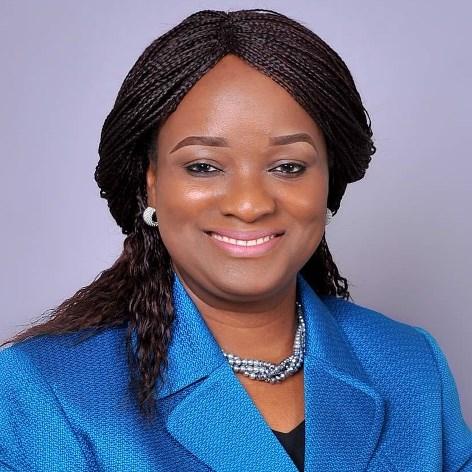
Married to Rear Admiral Kehinde Komolafe (Rtd) who is also an Ordained Pastor of the RCCG Nigeria, they are blessed with 3 children. Together with her husband, they are committed to providing financial support to as many less privileged students as they can accommodate. Mrs Bimbo Komolafe is the founder and Executive Secretary of the Rehoboth Dream Solid Foundation.
Rear Admiral Kehinde Komolafe (Rtd), is a highly revered and distinguished military officer who served meritoriously with impeccable records in the Nigerian Navy. He graduated from the Nigerian Defence Academy in 1980 and was commissioned as a Naval Officer a year after. Due to his quest for knowledge and passion for competence, he proceeded to study at the University of Nigeria, Nsukka where he graduated in 1985 with a B.Sc. Degree in Accountancy. He attended several courses nationally and overseas and witnessed consistent career growth during his active years in the military.

Rear Admiral Komolafe is a change agent with a commitment to providing transformational leadership and ensuring realignment of processes, operations, resource and people on various integrated fronts for optimum value creation. He held various sensitive positions in the Navy before his voluntarily retirement from the Service after 35 years of meritorious service. He presently sits on the Board of many prestigious organizations. Beyond his Military career, Rear Admiral Kehinde Komolafe (Rtd.) is a lover of God and a Pastor. He is married to Mrs. Abimbola Komolafe and they are blessed with 3 children.
Charity to the lesspriviledged










Skills Acquisition programmes


Raise funds for the needy
Supporting the poor
THINKING ALOUD JUL SEP 2022 46
every support
continued support and commitment that has
it possible for us to continue to provide succor to the less privileged in our society. We pray that God will bless you and grant you success in all your endeavors.

We appreciate
over the years and your
made
Donations: You can make your donations online at: https://www.rehobothdreamsolidfoundation.org/donations



























 D S F
D S F











































































































































































































































































































